Text
Vidya Balan's 'Sulu' – the Modern Day Renaissance Woman
Dear (actually, insert husky Hellooo) Sulu,
God knows how eagerly I had been waiting for you to leap out of the cinema screens at us, and take us on the joyride we were promised through your warm and whimsical trailer. Comparisons with Hrishikesh Mukherjee and Basu Chatterjee had already been drawn; and now, having watched the film, while I must confess myself not entirely pleased with the tad overly contrived plot, I am so glad I found a champion in you – you, my dear lady, are the Renaissance woman we need more of in this world today.

Official poster of ‘Tumhari Sulu’, starring Vidya Balan, released 17 Nov 2017
A Renaissance person, or a Polymath, is someone who – just like you – has no fear diving into uncharted waters with a "mai kar sakti hai", and always finds joy in learning with a "mereko har cheez mein maza aata hai…". Leonardo da Vinci was one (painter, sculptor, architect, musician, mathematician, engineer, inventor, anatomist, geologist, cartographer, botanist, and writer); Michelangelo, Galileo were too, and closer home – Shri Rabindranath Tagore. I mean, coming in second at the Lemon Race in your very first attempt deserves all kinds of praise (next time though, try holding the spoon by the molars). Not to mention the pressure cooker and all other appliances you earned by just being your charming self over the radio! Since when did a four-page long Biodata full of hobbies become a bad thing anyway? Your sisters laugh at you because you are different; you laugh at them because they are the same (pun intended, because they are twins! Get it, get it?!).
Blogger and entrepreneur Emilie Wapnick has been kind enough to introduce to us the term multipotentialite. Yes, that pretty much describes you and I. She speaks for us when she says some of us are not wired to specialize and stay with one thing throughout their lives; some of us are instead meant to keep learning, quit and switch tracks once the inevitable overbearing ennui sets in – thus acquiring multiple skills in the process – and, as a result of those eclectic experiences, be able to see and create new points of intersection and opportunities, that others specializing for years in that area might never have hit upon. Take yourself, for example – did not being the devout yet occasionally naughty wife, having practised the seductive, husky timbre on the husband, as well as all the SP Balasubramaniam impressions, help you become the best RJ possible?! Would any other glib, regular RJ have been able to do the late night show even half as splendidly as you did?
And yet, the first question you are asked admonishingly everywhere you go job hunting is "pehle kabhi kiya hai?". It is telling of a world and a job market that only seeks people already with experience for the job at hand, while not being willing to train or invest even a little bit of time on someone who is no stranger to learning new skills, and who would surely master it in no time. Not just that, you are such a sweet, wonderful empath too – just look at how you put a smile on the face of that man who phoned in only because you reminded him of his departed wife! Compare that with the narcissistic scoundrels who comprise a major part of our workforce, who continue to successfully climb up the corporate ladder every day – making life more miserable than ever for their subordinates – and you know we need a major relook at how we choose our people.
The world of today, that seeks only specialists and is unfairly stacked against Polymaths, really needs to acknowledge your existence. Those that do not appreciate your talents will chide you for being indecisive, or worse, ignore your job application and leave you hanging for an answer. But here is a thought for them – maybe loyalty and job satisfaction works both ways. A multipotentialite just needs a bit of faith in their abilities, and a relaxed space – and then one can watch them not only master their job, but iron out and improve a dozen others. You, Sulu, are the disruption the system needs, and probably the best ever investment they will ever make; but if they never give you a chance, they will never know.
And so I look forward to the day the world learns about and understands the value our tribe brings along. That day, let us rejoice with yet another fantastic cackle of yours, which silences everyone on the other end once and for all!
#thoughts#tumhari sulu#renaissance#polymath#multipotentialite#Emilie Wapnick#Vidya Balan#Bollywood#workplace#culture#shift#empath#narcissist#specialist
1 note
·
View note
Photo

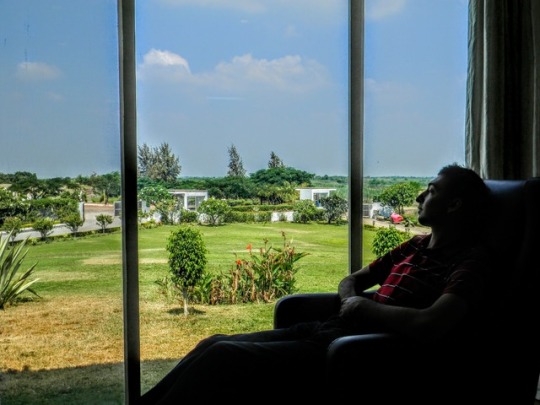
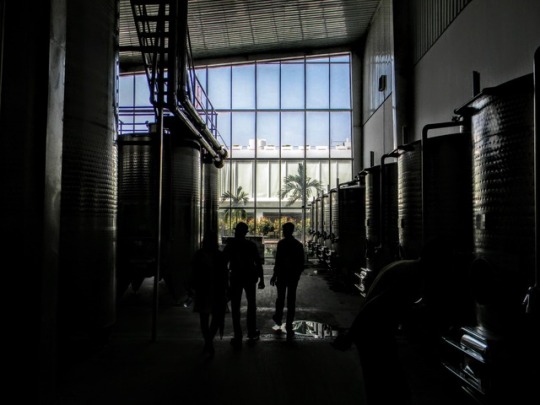







Guess What - One of India’s Finest Wine Estates is NOT in Nashik...
Photos © Abhinav Banerjee
#fratelli#wine#estate#vineyard#winery#indian wine#akluj#solapur#maharashtra#sommelier#winetasting#winelover#food and wine#Zanjewadi#gallery
0 notes
Text
Tuva – Reeking of Mysticism…
I was well into my second week of my dream Trans Siberian Railway ride. So far, I had had a 50 hour train ride from Moscow to Novosibirsk, a couple of days of exploring the town of Barnaul with the help of my Couchsurfing host Sasha, scouting around for tent and camping equipment, and almost a week of trekking up in the Altai mountains. One part of Siberia that needed a bit of a detour, but fascinated me enough to be willing to jump through all hoops required, was the majestic Republic of Tuva...
I took the night train from Barnaul to Abakan, and I knew right away that I was in a part of the country that was absolutely off the tourist radar because, for the first time, I felt conscious of hard stares from fellow passengers. Many curious people came and struck up a conversation (and even took pictures for their Instagram!). I reveled in the attention for a bit, till digging deep into my limited vocabulary and answering with strain in incoherent Russian became a little too stressful, and I feigned ignorance of the language for the rest of the evening and went off to sleep on my berth.

Early the next morning, I arrived at Abakan. There were quite a few 'marshrutkas' (mini-buses) outside to depart for Kyzyl, capital of Tuva. I sat in and more curious stares and questions followed. I felt more conscious than ever, for I hadn't freshened up or even once checked myself in the mirror in the last 24 hours, so I knew I must look a sight (and a downright ugly representative of India, to boot). I refrained from talking much, but before long, was most pleasantly surprised to find one of my fellow passengers come up to me and speak in impeccable English. She introduced herself as Serji, a native of Toora-khem – a small Tuvan village, more than a half day's bus ride from Kyzyl – but having worked in St Petersburg in the past, and volunteered as part of an International Student Run Organisation at exciting places like Colombia! I sensed in her a fierce desire no different from mine to see the world and understand as much as possible of the cultures beyond hers, and was highly impressed. She donned the hat of guide and translator for the rest of the bus ride; I was relieved that all questions about me were now directed to her!

Once we reached Kyzyl, I started looking for a 'Student's Hostel', a reference to which I had found online somewhere on only one page in English. With Serji's help, I now did a search in Russian on Yandex, and she was of great help in mining the exact name of the building and street from among all the Cyrillic the search results bombarded back. Turns out it is the local University students' accommodation, which is let out for tourists during the summer holidays – only there aren't many visiting this part of the country. Serji decided to stay at the same hostel for the night, for she had missed the day's bus to her village. We also met Roman, an ardent photographer originally from the Urals, who had also just dropped in earlier that day.
Right on the opposite side of the road was Vostorg – a place for cheap eats, which is where we had lunch. Later that evening, we walked around the City Centre and took in the sights around – the museum, theatre, and other pretty edifices. The sight that stayed with me however was the mandatory statue of Lenin erected at the Centre and, in the distance inscribed on the hills overlooking the city, the letters 'Om Mani Padme Hum' in Tibetan script, visible in the same frame!
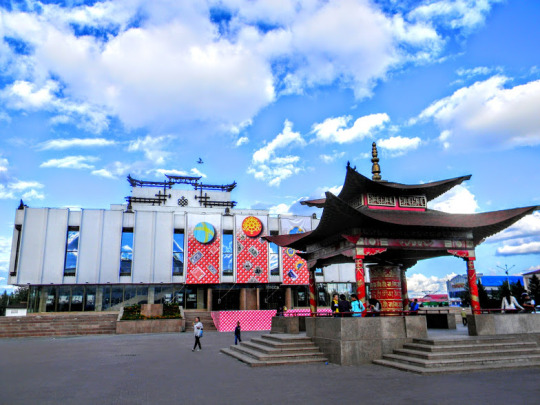

I next walked up to the 'Center of Asia' Monument at the Heritage Park that evening. Right next to it was the Kyzyl Tourist Information Center, the upper floor of which had a lovely Café with a balcony. From here, one could see the river Yenisei running alongside the Park.
Presently I was joined by Roman, who said he had managed to hire a car to visit southern Tuva the next day, and invited me to join him to split costs. I said yes, but was forced to change my mind not too long after when I learnt that the following evening, the National Tuvan Theatre would be playing host to the Annual International Concert for 'Khoomei' – the mystical art of throat singing, and emitting multiple octaves of sound, prevalent in this region as well as Mongolia. I jumped – this was the thing I was most hoping to see in Tuva! And to think the Annual Concert is at the very time I am here – if this isn't serendipity, what is?!

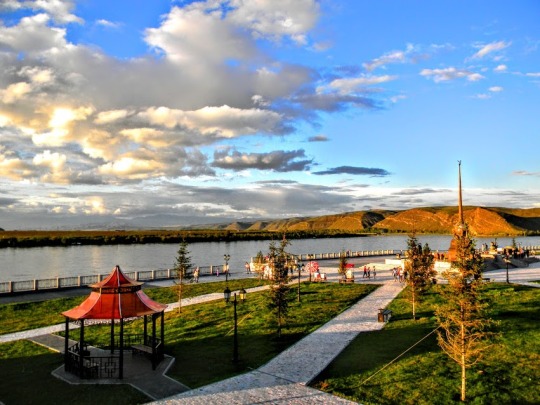
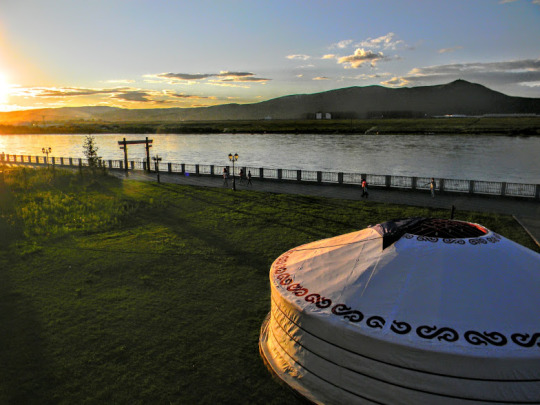
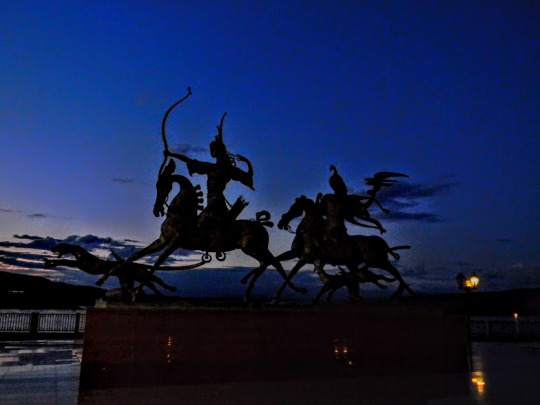
I went out early the next morning to the theatre, and just as it opened, secured a ticket to the concert that evening. The rest of the day was spent at the National Tuvan Museum , which has a fabulous collection of artefacts, and the star attraction of which is the 'Scythian Gold' (no photography allowed unfortunately). Serji took me to an authentic Tuvan café for lunch, where I had some local lamb soup, 'chorba', and 'snezhok', which is very similar to our own lassi! I then saw Serji off at the bus station and thanked her for everything…
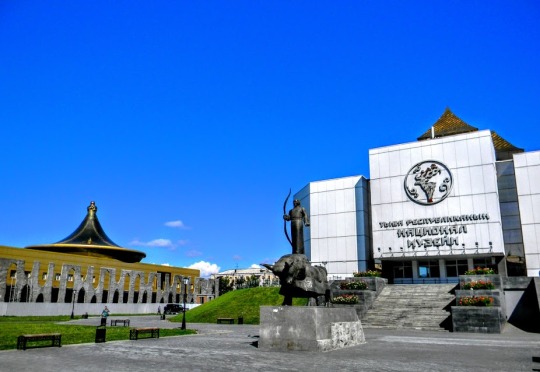

The concert began as scheduled at 7.00pm in the evening, and no time was wasted in getting the performers to show off their incredible vocal magic – my hairs stood up from the word go! Over the next two hours, local music groups as well as other national and international participants put up a spectacular show. This certainly goes down as one of the most unique and surreal experiences I have been privy to EVER!
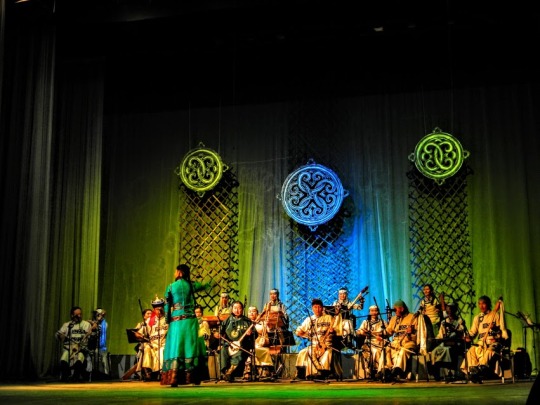
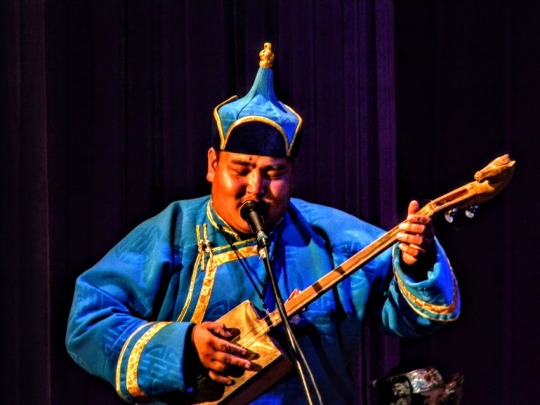
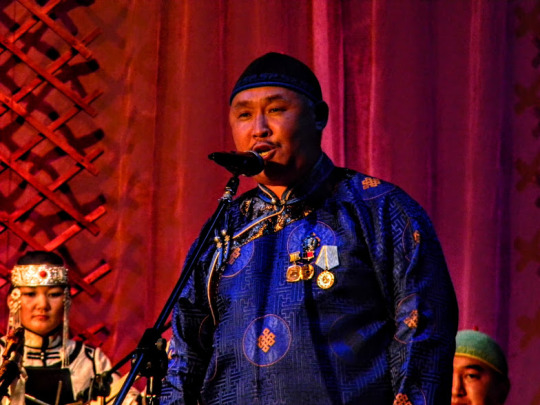
The next day, Roman was bound for Western Tuva, and was kind enough to ask again if I could join in. After the concert, I felt I had pretty much seen what I had come to Tuva for, and now anything more would be a bonus. We were to be seeing some nomadic families in action as well as their 'yurts' (tents), so I was excited about that. My plan was to return that night to Kyzyl and head out by bus or train.
We started with seeing the Buddhist temple of Ustuu-Khuree, which had plenty of prayer flags around it. We'd bought prayer flags ourselves, and tied them along with our 'zhelanie' (wishes). Now that I write this a year later, I can indeed happily confirm that my wish did come true!
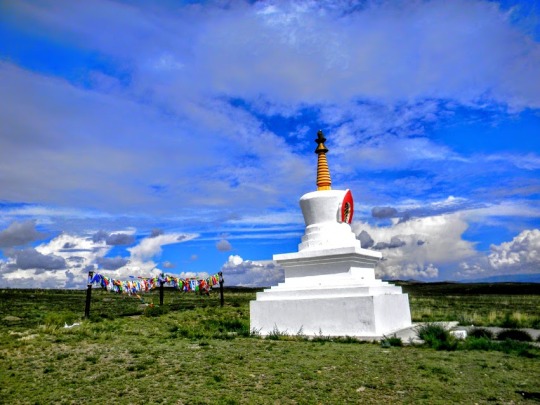
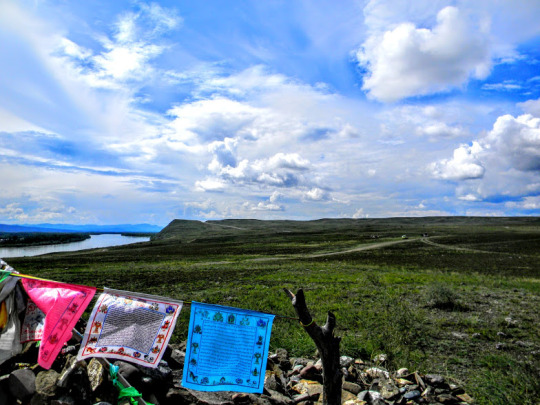
Next was 'Aldyn-Bulak', an ethno-village recreation nestled amidst the hills. Pretty, albeit a bit too 'set up' for my liking.
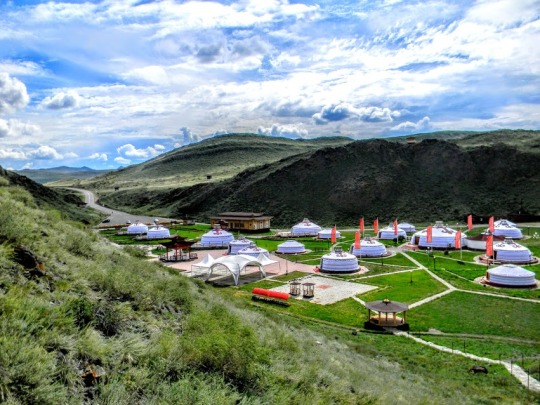

Some breathtaking sights greeted us the rest of the way. I had lost count of the rainbows I had seen on this trip; while the sight of the vast steppes amidst the backdrop of rolling hills looked otherworldly indeed…




Soon after, however, the car broke down, and could not be fixed no matter how hard our driver and co-driver tried. It had turned pitch dark, and there was not a source of light close by save for our torches. Obviously there was no going back to Kyzyl to catch the bus out now. Roman had a reservation at a 'yurt' that night, and called them for help. Soon after, a car came our help; we were ferried to the closest village of 'Bizhiktig Khaya', where the nephew of the lady who managed the yurt stayed, and we were to spend the night there. The following morning, another car arrived to take us to the actual yurt, which was about an hour's drive away. Once there, we settled in, and I took in every bit of the well endowed tent; there was sheepskin all around, meant to help keep the place warm. We were then treated to a delightful spread of salad, 'lepeshka' (bread), and soup – all lip-smackingly delicious!
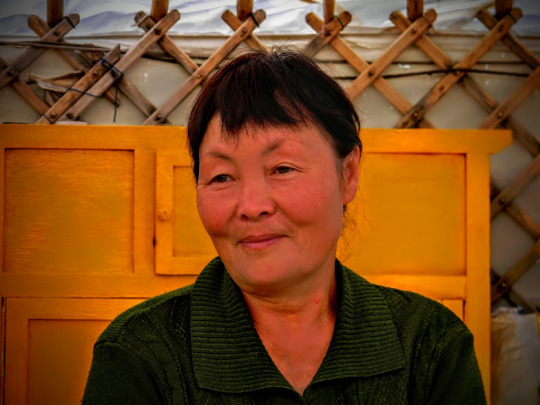

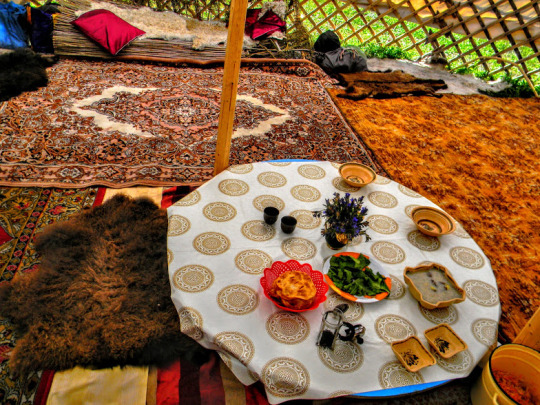
We hired yet another car – a 4x4 and quite the fuel guzzler – and went out to see some more places around; first to another yurt, this time not part of a camp, but owned by a real nomadic family. I enjoyed having the spotlight on me all over again, and for good reason – Indians did not drop by in these parts everyday (though turns out they know of the singer Bittu Malik!). It was time to head back – sunset views were a delight to take in, as was the sight of horses and cattle herd returning to their farms.





That night happened to be 'Rakhi Poornima' (August Full moon)… and also my birthday! I kept running over a thousand thoughts in my head, while snuggled in my sheepskin blanket, and couldn't sleep for excitement. I came out to admire the yurt lit up by the glorious moonlight, and froze the frame in my eyes and lens forever…

The next morning, after a wholesome breakfast, we climbed up the nearby hills to see 3000-year old peteroglyphs carved on the rocks.

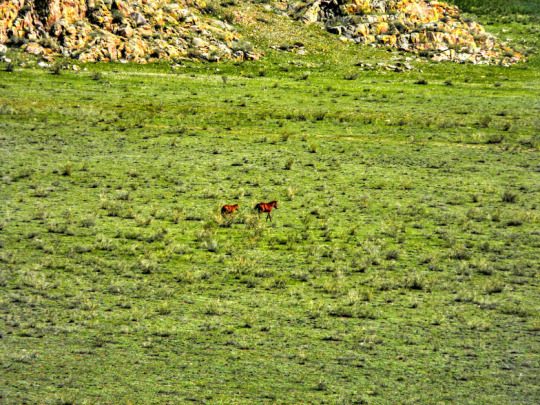


We were presently joined by an Italian girl, Alessandro, who had just come back from a week-long trip among the reindeer herders, and was heading back that afternoon to Abakan; we decided to take the ride back with her. Just before sending us off, our host performed a shaman ritual on us, blessing us with closed eyes and deeply resonating chants – very mystic, very powerful…
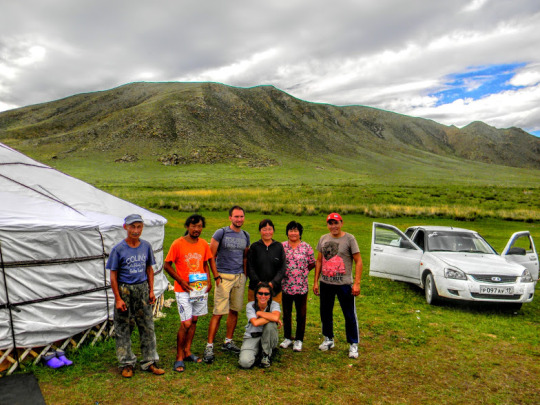
We passed by the beautiful region of Khakassiya on the way, and reached Abakan by late evening. This is where I bid goodbye to both my new friends – Alessandro and Roman – for I would be staying the night at a hostel in town before heading out the next morning. I had the rest of the night to ruminate over the overwhelmingly different and transcendent experience the last few days had been, and marveled at my destiny – I had come seeking so little, and ended up getting so much more than I bargained for; not very different from what they say about God – you take one step towards him with pure faith in your heart, and he will take ten closer to you…

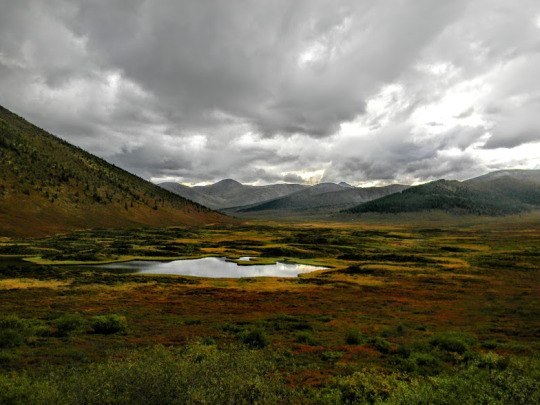
On to Krasnoyarsk next, where more exciting adventures await…!
0 notes
Photo
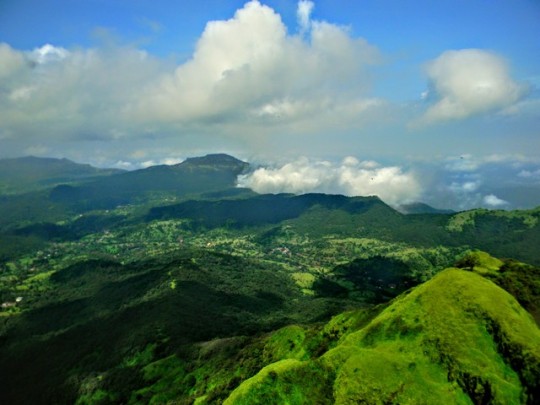

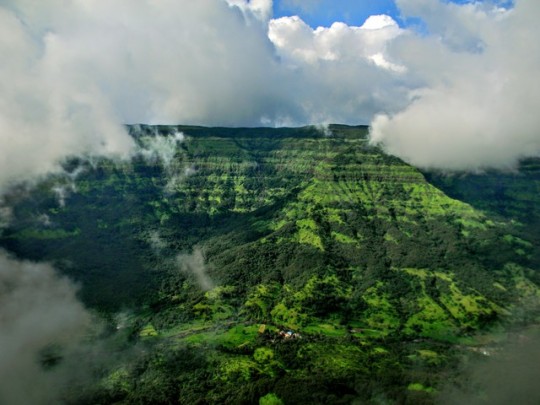





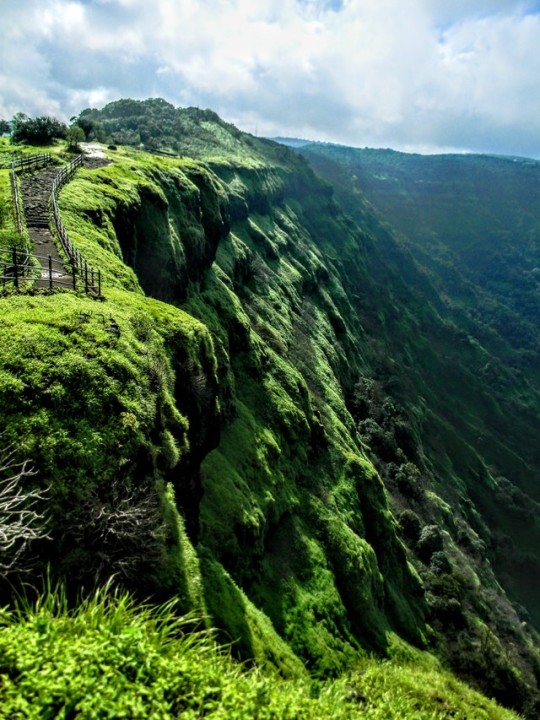

The Sahyadris in Monsoon, September 2017
Photos © Abhinav Banerjee
0 notes
Text
Rendezvous with Atish ji...
Shri Atish Mukhopadhyay is a leading sarod exponent of the Maihar Senia Gharana of Indian Classical Music from the current generation; and besides being an active disciple of Ustad Aashish Khan and a performer of repute himself, also holds workshops, lecture demonstrations and teaches students at some of the most renowned music schools in India and abroad. As part of his visit to Moscow in June - July 2017, along with Debasmita di (senior journalist), I caught up with him post his concert with Ustad Aashish Khan (covered in this post earlier, and saw his class in progress at the Moscow Conservatory. Here is the complete interview, with the state of Indian Classical Music straight from the horse’s mouth...

Q. When did you first come to Russia and how did you come to be associated with the Moscow Conservatory? What was the general idea about the country that you came in with, and has it changed after seeing it for yourself?
Well, this happens to be my tenth visit to Russia! I remember growing up reading these two magazines in the Bengali language that we had subscribed to – 'Soviet Naari' (Soviet Woman) and 'Soviet Desh' (Soviet Life). I had always imagined this to be a very different and mystical country, and it was more so because absolutely none of my acquaintances had ever come visiting this part of the world! I first came performing at a Concert at the St Petersburg Conservatory in 2009. While there, I struck up a friendship with a couple who happened to be part of the Faculty. They then got in touch with me again in 2012, inviting me to perform at the 150th anniversary celebrations. Meanwhile, the Moscow Conservatory folklore group had come visiting the event, and next I knew, I was invited to give a lecture demonstration at the Moscow Conservatory as well. I was again invited in 2013, and this time besides the lecture demonstrations at the Moscow Conservatory, I also performed in concerts at St Petersburg and at the DP Dhar Hall of the Indian Embassy in Moscow. It was around then that Dr Sapkal, then Ambassador of India to Russia and a great music lover, encouraged me to start taking classes, and so I did – in 2014 in St Petersburg, and 2015 onwards in Moscow.
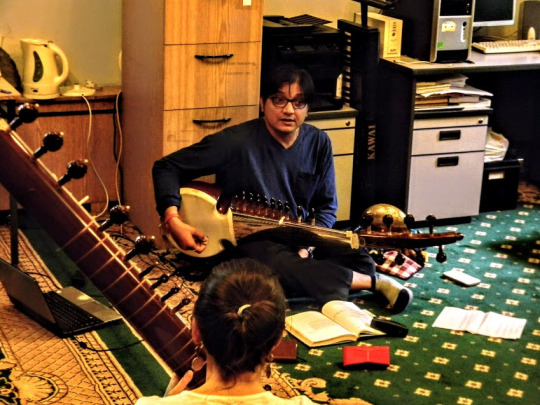
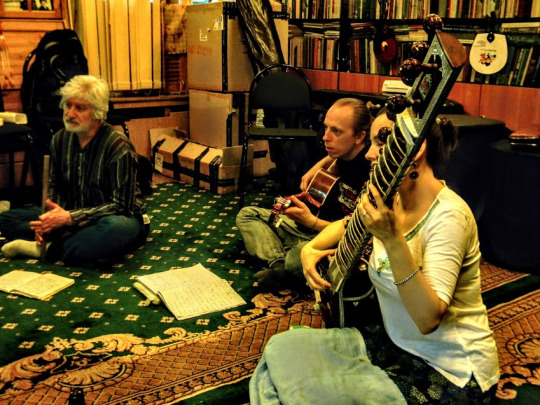
Q. What is your sense of the students here – in terms of their interest, motivation, and sincerity towards learning Indian Classical Music?
Of course I have had students who have dropped out, after having studied for a semester or so; after a brilliant concert, many come thinking they'd be able to start playing at that level rightaway, underestimating the hard work, level of commitment, ear for music, time and discipline it needs. But as for the 25-odd students I do have that are constant, I can see their interest is genuine – they are not here on a whim. It is a challenge for Russian and foreign students to pick up Indian musical notes, scale and style, considering they have grown up listening to the diametrically opposite Western Classical style. That is why I have my students meet at least once a week and practice together, so as to imbibe in them the feeling of being 'guru-bhais' (fellow pupils akin to siblings) to each other, and seeing each other as family. I sometimes also need to be tough so as to be taken seriously. Like I once abandoned a group for a semester, and that instilled a sense of tremendous fear in them. I can teach not-so-talented students, but I expect 100% commitment.
Q. Indian music is generally perceived to be very hard and difficult to learn – what can we do to make it more approachable without diluting its essence?
The question of dilution has never arisen for me – I have always taught students Classical music in its purest form, albeit only in digestible chunks, and in different levels. I truly believe unadulterated Classical music will be appreciated by all, even those who do not understand the grammar, as it touches the soul.
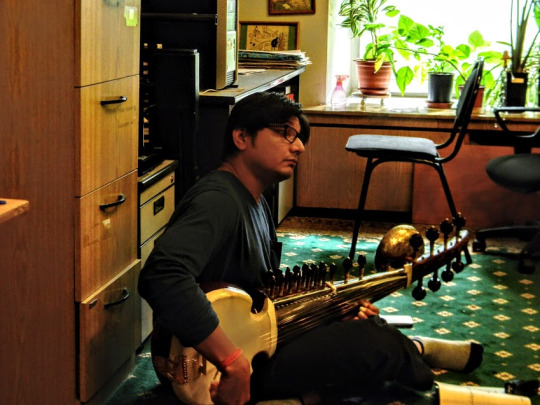
Q. What are your thoughts on the Indian Classical Music scene today? And do you think our authorities are doing enough to promote it?
Very honestly, as an Indian, I feel sad that our ancient and rich culture is not promoted enough, whereas other countries and their embassies do so much to promote theirs. Beyond vocals and tabla, there isn't any recruitment posted of music teachers at state run music schools / Cultural Centres. Now I happen to be empaneled as a musician and teacher with the Indian Council for Cultural Relations (ICCR) – ideally, I should be sent officially by the government to one of its music schools abroad whenever there is a requirement, but so far I have received none. But considering the students I have even as I teach now in my individual capacity, I refuse to believe there was no requirement to begin with. The ICCR does not even offer sarod lessons, only the sitar at most. I was suggested to apply under the 'multitalented' category, i.e., to teach both instrumental and vocal, but even that has yielded nothing, for their policy is to replace a tabla teacher with only a tabla teacher, and not of any of the so many other percussion instruments we have, thus being totally closed to any change or new ideas.
Also, our authorities, the embassies included, are intent solely on expanding the reach of our popular music – cinema, light music, Bollywood, etc, but not real classical music. Classical musicians tend to be sent to insignificant events, bazaars, bookshops, streets, etc, and that dilutes its sanctity. Such performances do not help popularize Classical music at all. I am also wary about fusion because too many Western musicians are interested in taking only the shiny, glossy parts of Indian music, to incorporate these 'exotic' sounds into their songs, and sell them to their audiences. In fact, many years ago Pt Ravi Shankar had written about his disappointment after working with musicians of the West – he lamented that it's selfish on their part, to use Indian Classical instruments and styles to exoticise their own music, yet completely sideline the vast body of art that it is, and ignore its depth of tradition.
Q. Why do you think there is such little audience for Classical Music today?
The generation of today has been misled into believing substandard pop, hip-hop music to be the gold standard in music, and are unaware of what real good music is like. It's only when they come to a spectacular or soul-touching musical performance, or a true master, that they experience an awakening, and learn to tell truly soulful music from the shallow music they hitherto had been subjected to.
Also, another complaint that organisers have is that Classical Music has no takers, no market, whereas Bollywood does; but consider yourself – how much of an investment has goes into creating that market! Zakir Hussain, arguably among the biggest stars in Indian Classical Music, can be brought in to perform at a spectacular concert say here in Moscow for about 30,000 USD – business / first class airfare, 5 star hotel stay, etc included; however, should you try bringing in a Bollywood star of the likes of Amitabh Bachchan or Shah Rukh Khan, I don't think they'd entertain you should you be talking any less than at least 10 times that amount! Ustad Aashish Khan and I have performed together globally at packed halls, including at the Moscow Conservatory. I also harbour a desire to perform with Anoushka Shankar at the Moscow Conservatory Great Hall, and there is no reason why that too will not be fully booked out. The audience is very much present, but needs to be tapped properly. Wonders can happen with a little bit of investment. However, the Government of India continues to invest large amounts into Bollywood – an industry which has the ability to support itself without any from the Government! Continuous reinforcement of Bollywood and its music through multiple channels has created its huge audience today, whereas nothing has been done to create that audience for Classical Music. You cannot expect all the rewards without even the slightest bit of investment to promote Classical Music!

Q. So what possible steps do you think can be taken to widen the reach of our Classical Music?
Well, for starters, I have in the past written to Mr Kapil Sibal (when he served as Education Minister) and Ms Sushma Swaraj (Minister for External Affairs). I strongly believe Indian Classical Music should be made compulsory in our school curriculum for students in their formative years. Even if some HATE it, at least they will know what it is about – instruments such as sarod, surbahar, ektara, pakhawaj, etc, and understand the concepts of taal, raga, etc. Sadly, I received no reply. Loud and aggressive styles of music meanwhile continue to push our traditional forms into oblivion. The reason Bhangra, Punjabi Music, and Bollywood are so popular is because of constant reinforcement. We need to reach out to more people – for every 10 people we reach out to, 2 may want to sign up. People should also understand that concerts and occasional performances are like icebergs – what's visible is only 1/10th of its body.
Also, our bureaucracy is highly to blame. Say the Director of the Conservatory approaches the Ambassador asking for support, who, if even a little receptive, would redirect her to the Director of the relevant wing. The Director's post is highly transferrable – before he learns the ropes of his job at a particular location, he is transferred again. The Deputy Director is then put in charge, who then says ends up saying no as he does not usually take such decisions and does not know better. A lot of time is thus wasted running around in circles. We really do need more support – financial, manpower, etc – as right now bodies such as the Moscow Conservatory organize everything independently, and they have limited budgets and freedom. Investors and companies need to be taken into confidence as to the importance of the cause. On their part, they would of course want publicity when they invest, which will be gladly given – an association with the prestigious Conservatory should definitely hold appeal. Advertisements can be put up during Live Webcast of the Concerts, and all of it together would bode well for their CSR in supporting the Arts and Cultural initiatives. All of this, however, needs to be communicated, and communicated well. I sincerely hope people understand and help us out…

(As told to ‘Aaratrika’)
#thoughts#Indian#classical#music#moscow#conservatory#Atish#mukhopadhyay#interview#Embassy#JNCC#culture#preserve#protect#tradition
0 notes
Text
Whatever has happened to music these days…??
A perennial refrain of every generation about its next, and a grave concern indeed – why is it that the quality of music continues to decline? Why does substandard, aggression-inducing music attain heightened popularity? And why does Classical Music find reduced patronage than ever before? To know more, let’s take a look below at the life story of Vishal…
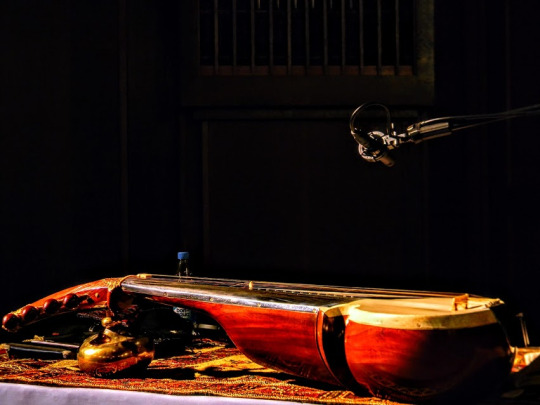
Lying Vacant…
Vishal was born into an educated, upper middle class family in Delhi, India. He grew up going to a school of repute in the city. His parents being strict academicians tended to his studies personally and monitored his progress. He lived not far from the Arts Centre, and there were some very renowned auditoria in the vicinity of his neighbourhood. Even then, he never once ended up going inside any, and never did catch a concert. Several performers came there – some of them considered modern day legends – and some even performing for free as part of charity concerts, but he had always had better things to do… Sometimes, people would ask Vishal’s parents if they would be interested in a musical evening out, and they would decline saying, “Nah, it would be boring for Vishal…”. Come Grade 8, and he pulled out of the one-period-a-week music and art lessons at his school on the insistence of his parents: “You need to focus 100% on your studies now, son… It’s time to get serious…”
Vishal continued to fare well in his studies – a consistent top rank holder all the way through. He had little time for distractions – the occasional Rock / Pop music was the only bit of relief he’d need, although his parents did not approve of it much. “Whatever has happened to music these days…??”, they would say. Very soon, he enrolled for coaching classes for his engineering entrance examinations, just as all of his friends had, and two years of his life flew by. Expectedly, he emerged as one of his school toppers, opening doors to practically anything he may have wanted to do. He chose Engineering, just as all of his friends had, and then the next four years of his life flew by. He was far-sighted enough to enroll at MBA coaching classes during his final year of engineering, and secured admission at one of the best B-schools in the country. He got himself a nice cushy job upon graduation from his MBA, and gave it his all over the next many years…
Being the sincere, hard working person he was raised to be, Vishal rose through the ranks in his company, and not too long after, found himself promoted to the position of CEO. He had responsibility of running the entire company, and his orders and well-informed decisions were followed by the last employee. Frivolities had little place under his leadership, and he expected 100% commitment to the job on part of everyone, just as he himself was wont to do. Everything around him was kept in perfect order – such as his email inbox, with only important work-related emails replied to and saved. Emails reading anything like “Kind Donation sought for Upkeep of Theatre…” or “Request sponsorship for Upcoming Classical Music Festival…” were immediately marked as Spam; he remembered his friend Ravi, who now served on Foreign shores as Ambassador of the Government of India, had complained of similar annoying emails from the local Concert Halls wherever he was posted, and knew they were to be ignored. On the few occasions that he found himself reluctantly in charge of an important brand promotion or CSR event, and which had to have a mandatory entertainment programme, he sought refuge in big names from the movies – superstars, popular contemporary artistes, pop singers, etc. After all, why would he compromise – his organization could afford to invite them, and it would serve well for the image of the company…

Travel Grants given by Indian Council for Cultural Relations (ICCR) to Outgoing Troupes for Performances Globally During the Year 2014 - 15 (Source: ICCR Website)
Years later, having established himself as a successful leader and now on the verge of retirement, Vishal felt a strange void, a lack of purpose within… He had calmed down and turned to spiritual reading, and lately developed a newfound appreciation for classical music. He realized it had the power to calm his frayed nerves and soothe the soul. His children on the other hand, who had now grown up, would only listen to and loudly play Rock and Hip-Hop music. He thought it was sheer cacophony blaring through those speakers every time, and he thought to himself, “Whatever has happened to music these days…??”

Disproportionate Empanelment / Dying Out of Talent? : Of a Total of 39 Instruments / Musical Forms as Listed by ICCR, across both Carnatic and Hindustani Classical, there are 767 Registered Artists against the Top 4, while the Least Popular 19 Instruments can be Performed and Taught by only 62 (Source: ICCR Website)

A Systems Model showing the forces governing sustenance of music in society: The links in Bold show the currently prevalent flow of resources, while the Dotted lines call for attention... (See a large sized version of the image here)
Who then is to blame here? Vishal’s Parents who failed to instill a sense of appreciation for the Arts in him during his formative years? The education system which teaches nothing of it? Or the performance/numbers-driven, overly capitalist, blind-to-the-Arts society which puts artists at the mercy of dwindling government grants or a few generous donors? Go figure..
#thoughts#indian#classical#music#save#culture#arts#tradition#heritage#systems#model#causes#factors#systems model#system dynamics#cybernetics#society
1 note
·
View note
Text
The time I realised ‘His Excellency’ is not an exaggeration...
... was when, along with Debasmita di (senior journalist, Moscow), I had the good fortune of sitting down over tea with the Honourable Ambassador to Russia from India, Mr Pankaj Saran, and engage with him in a memorable and deeply insightful chat. The interview, excerpts of which I present below, was carried out for the annual Indo-Russian magazine ‘Aaratrika’ (the editorial board of which has yours truly on it) on the occasion of the festival of ‘Durga Puja’. The full interview in the magazine can be found here. Past editions can be found here.

Q. Please share your earliest memories about Russia. Some of the revelations the country and its culture presented to you...?
A. I visited Russia for the first time 32 years ago. I landed in winter in the month of January when everything was covered in snow - absolutely white… I had never seen so much snow in my life! I was overwhelmed by the vast expanse of the country, its sheer size. The hospitality and warmth with which we were received by the common Russian citizens wherever we went was truly memorable. India was known for its greatly entertaining cinema (Raj Kapoor!) and there was a great interest towards the Indian culture. That was the time when friendship between India and the Soviet Union was very strong. India was one of the Soviet Union’s most important strategic partners.
I was learning Russian at the time; as a result, I was exposed not only to the language, but also other aspects like literature, music and the cuisine, which was a stimulating experience. I was keen to take in as much of Russia and her culture as I could. Every single day was a voyage of discovery and understanding. I felt deeply that Soviet Union needs to be understood much better than most people understood it.
I travelled extensively throughout Russia, driving through the length and breadth of the country and across its vast highways. I fondly remember my visit to Krasnaya Polyana. I also visited the other republics - Baku, Dushanbe, Frunze and Tallin. It was indeed a hugely enriching experience.

Q. Prior to Moscow you were posted in Dhaka, Bangladesh. What are your fondest memories from your stay there, and your key observations?
A. I was fortunate to spend eight years across two stints in Bangladesh. My association has been a deep one. I was first posted from 1989 to 1992, and it was then that I witnessed the emergence of democracy and the first elections after the fall of General Ershad.
Bangladesh is a very critical neighbour, and our relationship is multidimensional. I will always carry with me memories of the warmth, generosity and exemplary hospitality of the people of Bangladesh. I made it a point to meet people across all sections of society, trying to understand their psychology, making friends and striving to promote our bilateral relationship.
I think during the three years of my stay, we managed to achieve a lot of breakthrough. I remember almost every single moment of my stay in Bangladesh - the bustling streets of Dhaka, the language, the poetry and the music. I even drove across the rest of Bangladesh, visiting all the major cities and towns, and in the process discovering a lot about India herself. The experience has been enriching every step of the way - never a dull moment!
Q. Were you exposed to Durga Puja celebrations and festivities growing up? In what way did you participate?
A. I attended many of the Durga Puja celebrations in Dhaka. Even before that, I had attended a few growing up in Delhi. What struck me was that these celebrations attracted people of all communities and age groups. Moreover, they were conducted peacefully and were very well organized with the support of the government and local municipal authorities. The government and eminent citizens of Bangladesh, by patronizing and celebrating Durga Puja together with everyone, send out a very positive message that the festival brings everyone together and is not denominational. It is a celebration of everything that Bengali culture stands for.
Of course, I love the music, the songs and the food (bhog) – basically the whole buildup to the Puja, the days of celebration, through its aftermath. I have also attended the celebrations at the Ramakrishna Mission. It always feels heartening to see the festival being celebrated by one and all with such enthusiasm.
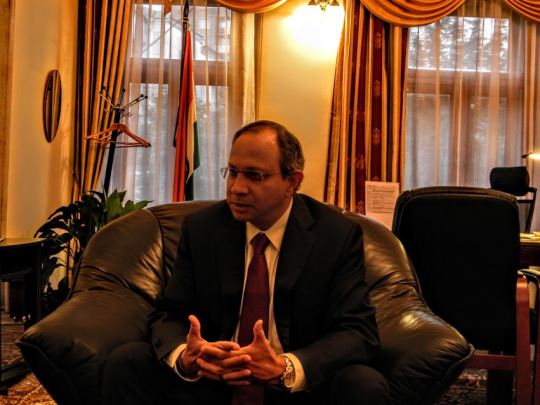
Q. Were you always this immaculate and well-behaved even as a child?! Please tell us a bit more about your childhood and growing up years...
A. (smiling) I think I'll pass the first part of the question, and leave that for others to answer – can't really introspect and analyse much over childhood memories! But I was one of two siblings – the elder one to a younger sister. We grew up largely in Mumbai (or Bombay, as it was called then) and Delhi, in very cosmopolitan cultures; and I think I did everything a young boy ought to do growing up to live life to the fullest – with all kinds of adventures inside and outside of school, then in college. I was given quite a free hand, as my parents trusted me enough to let me live my life. Those were the days when there were no mobile phones or Television sets (even Black & White TV came much later), so the means of entertainment would be playing with and talking to friends, more of physical interaction, reading books, travelling to various parts of the country, etc. And there used to be quite a premium on physical sport, unlike today where we see technology binding us down to our laptop and computer screens. We used to find joy in simple things – the monsoons of Bombay, the intellectual discussions and activities at Delhi University; we grew up with the belief that there were no limits to our growth, and that we would certainly enter a world much better than that of our parents.
Q. For someone intent on maintaining and bolstering relations between countries, how do you connect with your inner self?
A. I don't really see a contradiction – there are many moments I spend introspecting on the work I do; you need to step back regularly from your day to day activity, to see and to reflect on what you are doing, why you are doing it and how you can do it better. And I really value those moments when I spend time all by myself looking through my life and planning my mission objective.

Q. For our younger generations, could you recommend one book to read, one movie to watch and one life skill to learn? Maybe even more than one, but which have given you the most joy and insights…
A. It's difficult and depends largely upon interests, but I would definitely mention Pt Jawaharlal Nehru's 'Discovery of India'; it would really help every young Indian understand their country so much better, because he brings together so many aspects of his life. I have also loved reading classic Indian works such as those of Premchand. Increasingly, I find myself becoming attracted to the Gita, because it says a lot about life – teaches you to manage contradictions, navigate the grey areas, and manage different pulls and pressures in a complex world. I am unfortunately not much of a movie person, so can't mention any.
As for life skills, I think it is of utmost importance to be able to handle tough situations – when things do not go as you have planned, whether at work or at home. I also believe everyone should have something to do apart from work – be it physical sport, or a hobby, or an activity; it's what makes you feel complete. Growing up you realise it's not the most important thing to score the highest marks, get into the best college, or secure the best job – life is more than that. It's about allowing yourself to discover what works best for you. So the ability to handle pressure is therefore a skill that will see you through all stages of life – including when you take up higher responsibilities such as starting your own family. I feel it's also important to listen to and learn from others – often you learn more from others than would otherwise be possible, and that's what helps you grow and evolve as you go along.
(as told to ‘Aaratrika’)
#thoughts#inside#mind#diplomat#india#russia#ambassador#his excellency#honourable#strategy#insights#hobbies#life#skills#essential
0 notes
Text
Why I Find It Difficult to Feel an Ounce of Patriotism this Independence Day...
Long story short, I feel thoroughly disgusted with, defeated by and in deeper distrust than ever of the system prevailing in my country; more specifically, the supposedly ‘new’, ‘streamlined’ Passport renewal process in India (implemented 2015, apparently) post going through it for my mother and myself during July-August 2017 at the Ghaziabad Regional Passport Office (RPO).
Here is the sequence of events, exactly as it happened:
25 Jul 2017: My mother and I go to Ghaziabad RPO for our Passport Renewal application appointment. From the moment we arrive at the RPO, we see no order being followed whatsoever. Our batch/sequence numbers have not been called out, and we keep waiting. Only after going to check a little while later do we realize that people from our Batch / Sequence numbers have already been queueing up for Biometrics. I stand in the queue for a good 20-25mins, before the person behind me says we need to get our Documents verified by another official first. No staff on duty around checked for this or informed about this. The person doing the Document verification does not let anyone in for quite a while as I stand waiting; moreover, there is no queue – people keep randomly coming in and some of those who come in later than me manage to get their job done first. I am instead shouted at (“आपको बोला न बाहर वेट करने को, सुनाई नहीं देता आपको??” / “ARE YOU DEAF?? DID I NOT TELL YOU TO WAIT OUTSIDE??”). Once my turn comes, he asks for address proof. I say clearly that the online Document Advisor said only the photocopy of the old Passport is needed for Renewal and with no change in address, only to be shouted at again (“ आपको ज़्यादा पता है?? नहीं आपको सब पता है तो आप ही बैठ जाइये यहीं…” / “YOU THINK YOU KNOW MORE THAN ME DO YOU?? SIT HERE AND TAKE MY PLACE IF YOU THINK YOU’RE SO SMART…”). Thankfully, I have my Aadhar card which I brought just in case it’s needed, and I am asked to go get a photocopy done from the floor below, leading to further waste of time. Finally after getting it done, I queue up anew for Biometrics. Meanwhile, my mother’s turn comes for Document verification, and the same official starts questioning her over why her 'mother’s name’ is missing in the form. Because I had filled up her form online, I intervene from the other end of the room and tell him the 'mother’s name’ field was optional, and the mandatory fields of 'Spouse’ and 'Father / Legal Guardian’ have been duly filled in (refer to this news item, clearly stating the new rules allowing for one of both parents’ names to be mentioned). To this I receive yet another humiliating shouting at in front of at least 50-100 other people (“आप अपने आप को ज़्यादा समझदार समझते हैं?? मदर ऑप्शनल होती हैं?? अपनी मर्ज़ी से कुछ भी करेंगे आप??” / “YOU THINK YOU ARE REALLY SMART?? SO MOTHERS ARE OPTIONAL?? THE WORLD WILL RUN THE WAY YOU WANT IT TO, EH??”). I stay silent through all this humiliation because I do not want to create a scene, and just hope my job gets done quickly.
** **
8 Aug 2017: File numbers GZ04C4030624817 and GZ04C4030579417 of my mother and myself respectively show no change in status (“Passport application has been submitted along with applicable fees and supporting documents”) till this point, which is when I decide it’s high time and I tweet to Honourable Minister for External Affairs, Ms Sushma Swaraj
** **
9 Aug 2017: Ghaziabad RPO’s Twitter handle replies to my tweet (upon the Minister’s intervention I am sure, so thanks to her are in order), but fails to grasp the urgency of the situation, and tells us to visit the RPO again; I question why, can they not take action themselves

** **
10 Aug 2017: Application Status changes to “Passport application has been granted and Police Verification Report has been submitted. The applicant would receive an e-mail/sms once the passport is dispatched”. We heave a sigh of relief and think our job is done
** **
11 Aug 2017: We get an email saying “Police Verification Request(s) have been initiated on Post-Verification basis” for both our applications. We are surprised at this, for, from what we knew, this torturous exercise is no longer done for Passport Renewal Applications with NO CHANGE IN ADDRESS. Still, we figured as this would happen AFTER we get our passports, we can refuse to pay the imminent bribe
** **
15 August 2017: We have still not received our passports, and are not expecting it to come on a National Holiday; but what we were certainly not expecting was the police personnel (#892290624, Sh. Vinod Kumar, Noida Sector 58 Police Station) to arrive at 9.30am in the morning. Burly and with a big protruding paunch, he looks very well-fed indeed, and we are left with no doubt as to what's coming. He again asks for photocopies of our Passports and an additional ID document, which we say we have already submitted during the appointment. But he asks us to go and get the Copies done somehow (to repeat, at 9.30am on the morning of 15 August 2017, when no shop would be open; moreover, my father being out of town, I would not feel safe leaving the house and my mother in such a vile man’s company). We look hard for photocopies and luckily find them. We ask why is the verification being done even when there is no change in address, and he says, “अब भेज दिया है उन्होंने…” / “You don’t have a choice now that they have sent me...” (obviously arousing suspicions that the Passport officials may just be hand in glove with the system). He sits long, and at the end, shamelessly asks for a bribe of Rs 2200. I am hush-hushed by my poor, scared mother, who gives in, finally 'settling’ the 'deal’ at Rs 2000. While leaving, he assures us, “अब जल्दी आ जाएगा आपका पासपोर्ट…” / “Your passport will come soon now...” (when if at all this was meant to be 'Post-verification’). I keep the entire conversation recorded on my Phone as a reminder of the banal existence of the powerless common man that is us (forward to 14:45 in the Souncloud clip below), and of the irony of what was meant to be Independence Day...
** **
16 August 2017: We promptly receive an SMS that the Passports have been dispatched (Important to note the timing – SMS comes the very day after Police verification that should, I repeat, have happened on 'Post-verification’ basis, i.e., address verification happens after getting the passport in hand; but that clearly is not so, for if we did get our passports beforehand, we could have refused to pay the bribe!)
** **
17 August 2017: The postman arrives at around 4.30pm, and hands over the passports... against a bribe yet again, this time of Rs. 200. Here he is in the video below, turning my mother back to fetch another Rs. 100 after he wasn't satisfied the first time round. In his words: "मैं तो कभी होली दिवाली पे ना मांगता, मैं तो २००९ से हूँ आपके यहाँ" / "I don't ask for anything on Holi and Diwali, do I? I am here since 2009, you should know how things work here..."
youtube
** **
Long ago, I had sworn that, come what may, I will not ever give up my Indian citizenship and passport in favour of any other... and I stand by that promise - on principle. But can I really blame someone if they choose to take the first opportunity to surrender theirs and rid themselves once and for all of all the dirt that we have to put up with?? Am I the stupid, sentimental fool here?? Sushma ji, Modi ji, are you listening...??
#India#corruption#Bribe#Shameless#Police#System#harassment#torture#extortion#passport#renewal#reissue#nochange#despair#disgusting#frustrated#frustration#common man#powerless#thoughts#complaint#government#ministry#vigilance#commission#external affairs minister
0 notes
Text
‘Vselennaya Zvuka’ - The Universe of Sound… (Part 3 of 3)
'Vselennaya Zvuka' Concluding Concert: A potent Bulgarian-Norwegian concoction
The 15th International Music Festival 'Vselennaya Zvuka', organised by the "World Music & Culture Center" of the Moscow Tchaikovsky Conservatory and having started on the 8th of May, came to a close on the 28th of June. The concluding concert saw Norwegian duo Tronn Folstad and Vera Folstad, performing under the stage name "Duo Cordoba", play their dulcet tones on the organ, piano and guitar in the intimate setting of the Myasgovsky Chamber Hall of the Conservatory.

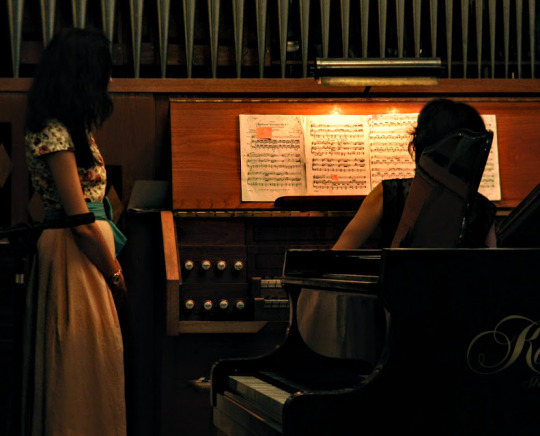
The delightful anchor for the evening
Vera Folstad hails from Bulgaria and learnt playing on the organ as well as studied Church Music at the Norwegian Academy of Music. She is a teacher of the piano and the organ at various music schools and colleges, and has performed in many festivals, programmes and church concerts.
Tronn Folstad studied classical guitar at the Oslo Conservatory. He has since performed as a guitarist at various Norwegian rock and pop groups as well as flamenco groups in numerous cities and at prestigious music festivals. He also happens to be a composer, with compositions such as 'Misa Flamenca' to his credit.

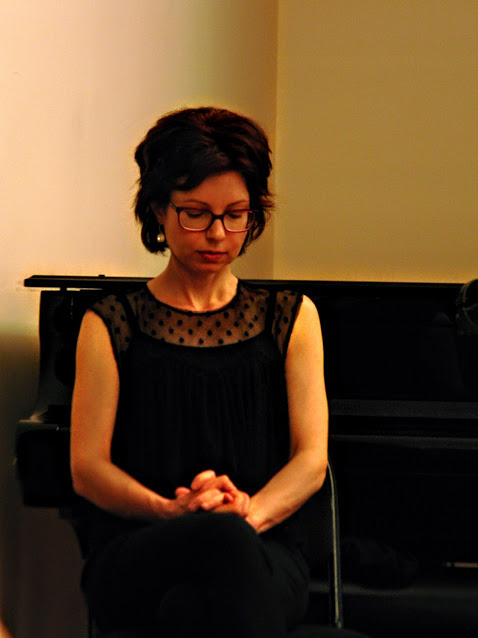
Vera Folstad
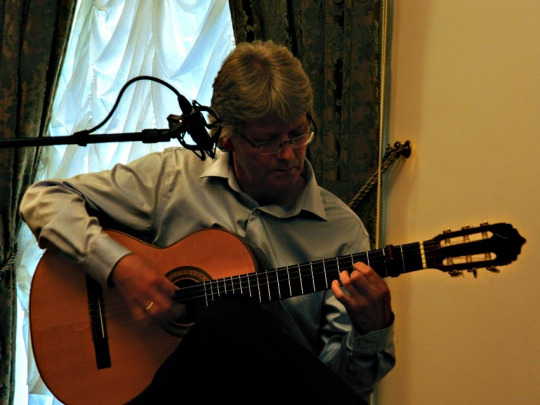
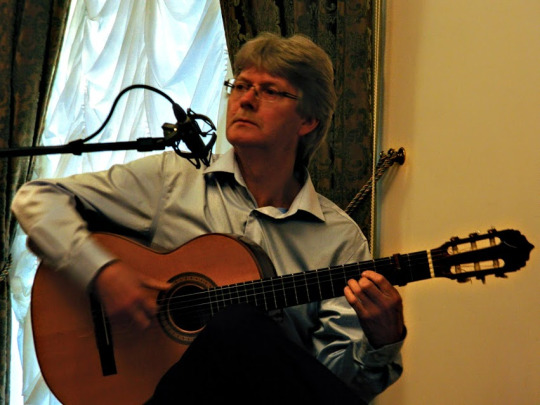
Tronn Folstad
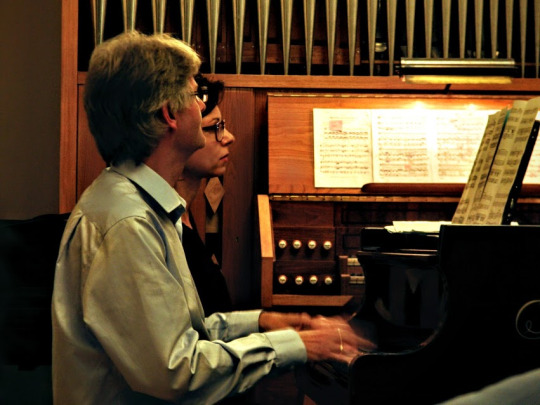
Duo Cordoba
Duo Cordoba has been performing actively at several Music Concerts and Festivals, supported by the Municipal Government of Oslo. On their maiden visit to Moscow, the duo chose an eclectic mix of compositions – including Vivaldi and Bulgarian Folk. Both got to display their prowess at each of their instruments – performing solo and together in turns; Tronn playing some energetic and foot-tapping Flamenco music on the guitar, Vera with her soulful tunes on the organ and piano, and of course both coming together for many a duet. It was a solemn yet engaging concert with quite a few moods on display throughout, and a befitting end to what has been a spectacular month and a half of celebrating World Music!
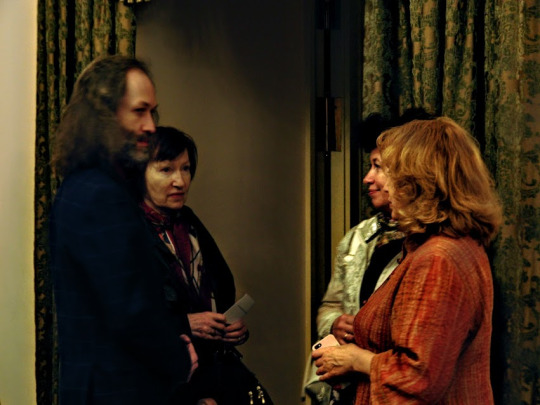
Post-concert interaction with the audience

Dr Margarita Karatygina (center), Head of World Music Cultures Center with Duo Cordoba
#vselennaya#zvuka#universe of sound#international#classical music#festival#moscow#conservatory#tchaikovsky#travel
0 notes
Text
‘Vselennaya Zvuka’ - The Universe of Sound… (Part 2 of 3)
On the evening of 11 June 2017, Muscovites had the privilege of watching Ustad Aashish Khan (son of the legendary Late Ali Akbar Khan), wield the power of the sarod in his first ever performance in Russia at the beautiful 'Maliy Zal' (Little Hall( of the Conservatory. The 119-year old Maliy Zal, known for its fine acoustics and tastefully done grand interiors, has played host to some of the most talented musicians from around the world, and saw itself filled to capacity by all lovers of music.

The Performers at the Maliy Zal
Ustad Ashish Khan is one of the most revered figures in Hindustani Classical Music today, having received his ‘taalim’ (training) under his father as well as grandfather, Ustad Baba Allauddin Khan, who was a royal court musician and founder of the Senia Maihar School of Music. Ustad ji was the face of Indian Classical Music at the festival this year, accompanied by his nephew Shiraz Ali Khan, also on the sarod, and brother Ustad Pranesh Khan on the tabla.
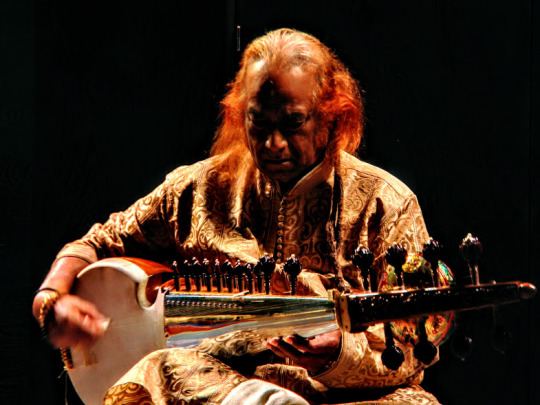
Ustad Aashish Khan
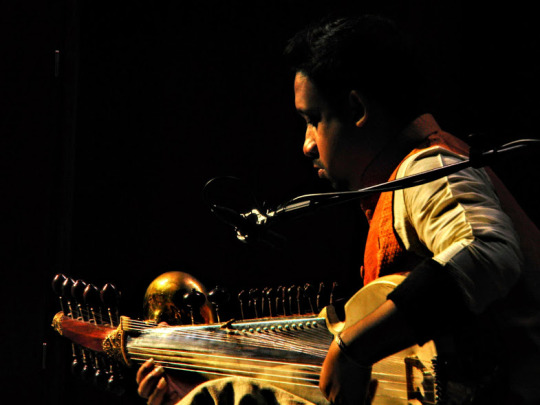
Shiraz Ali Khan

Ustad Pranesh Khan
The evening began with a hauntingly beautiful rendition of the evening raga Puriya Dhanashree, and continued with the rain-invoking raga Desh Malhar, in keeping with the season in Moscow, before moving on to a 'ragamaala' (a medley of various ragas) and a captivating 'sawal jawab' (call and response) session with the tabla. Ustad Ashish ji explained the nuances of the sarod along with Shiraz, who kept perfect step all along the way, while Ustad Pranesh Khan kept the audience enthralled with impressive theatrics on the tabla. The interactive sessions were very well received by the eager Russian audience.

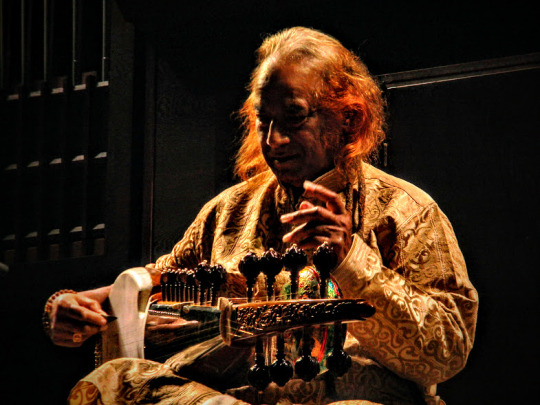
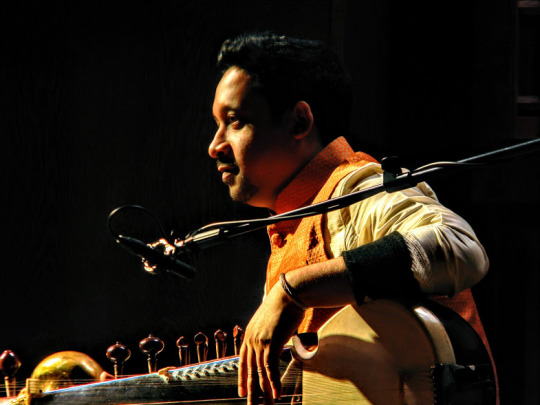

Connecting with the audience
The performance was met with unanimous applause by the audience members and requests for a final performance could not be ignored. Ustad ji conceded by playing the beautiful morning raga Bhairavi thus bringing the glorious evening to an end.
Passing on the Reins
In keeping with the ancient Indian principle of ‘guru-shishya parampara’ (teacher-disciple lineage / традиция учитель-ученик), while we were treated to a scintillating performance by the ‘Guru’ on the evening of 11 June, his treasured ‘Shishya’ Shri Atish Mukhopadhyay descended the following day along with his students on the historic ‘Rachmaninov Zal’ (Rachmaninov Hall) of the Moscow Conservatory and opened the Annual Students’ Concert. Atish ji is the leading exponent of the Maihar Senia Gharana from the next generation; and besides being an active disciple and performer of repute himself, also holds workshops, lecture demonstrations and teaches students at some of the most renowned music schools in India and abroad.

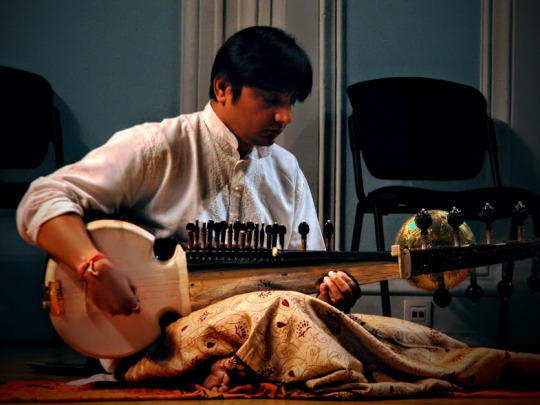
Starting with two very old Yaman Kalyan compositions, Atish ji along with fourteen of his students - nine vocalists, one each on the tabla, flute and guitar, and two on sitar – set the tone for the rest of the evening. They finished with a ‘Bhairavi Tarana’ composed by Bahadur Hussain Khan, descendant of Miyan Tansen of the Senia Gharana and court musician of the Great Mughal Emperor Akbar. The performance was a seamless integration of all the various instruments and vocalists that were part of it, with perfect execution of technique. They left the audience mesmerised and there was palpable pride on their faces at the end of it.
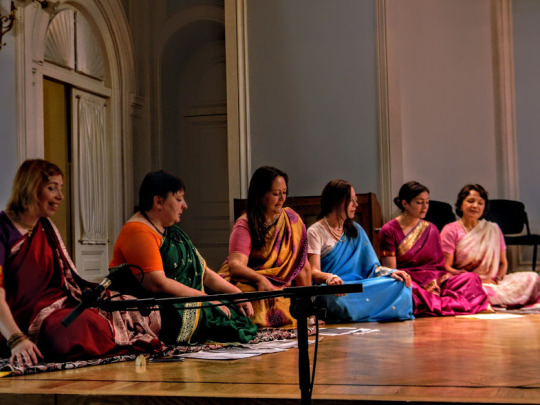


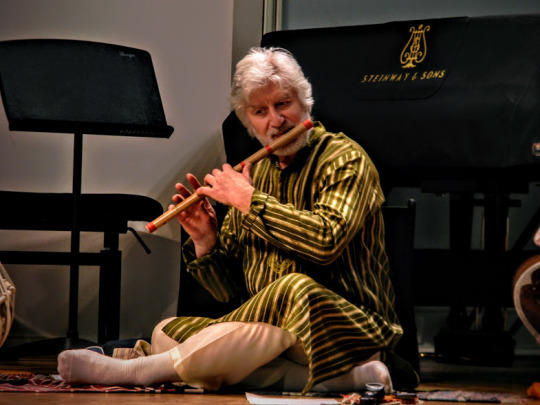
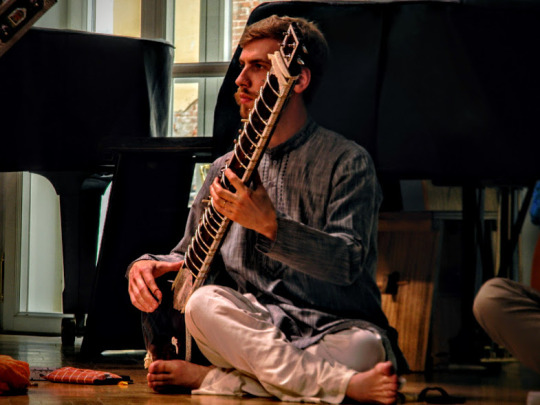

The concluding piece in the Indian Classical segment was a tabla solo by a student of Shri Gulfam Sabri, teacher of music at the Moscow Jawaharlal Nehru Culture Centre (JNCC). Accompanying her was a student of Atish ji, who played a 'nagma' (aka 'lahara', the melody refrain used to accompany the tabla) in Raag Kaafi, composed by Atish ji himself, on sitar.


It was truly a celebration to behold, with the handing down of skills from guru to shishya on virtuous display. The best part was Ustad Aashish Khan himself gracing the occasion, as a member of the audience, sending out his silent blessings to all the future torchbearers of Indian Classical Music in Russia...
Learning from the Maestro - Master Class wth Ustad ji
Students and lovers of music had the rare opportunity to learn about Indian Classical music and the sarod, one of the most important instruments in North Indian Сlassical music, from Ustad Aashish Khan himself as part of the Master Class organised by the Tchaikovsky Moscow State Conservatory on 12 June 2017.
The class lasting over two hours saw Ustad ji talking about the tradition and practices of Indian Classical music, the techniques of playing his instrument and demonstrated musical exercises to gain an improved sense of notes, rhythm and timing. The maestro played notes from over 15 ragas, explaining their mood and nature, and their connection with the time of day and seasons. Patiently answering questions from eager students, he also emphasized the importance of rigorous ‘riyaz’ (practice / тренировка) in improving ones music skills. All in all, the day goes down in the minds of the students as a highly memorable, warm and inspiring experience!
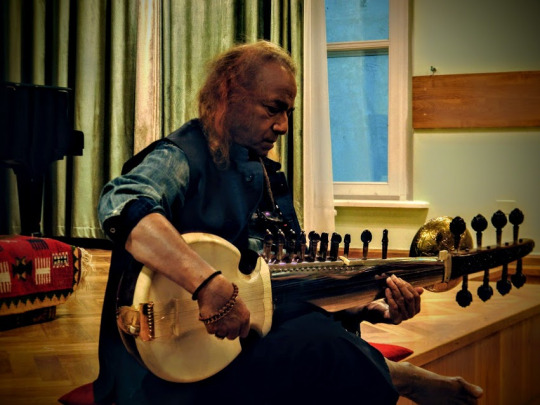

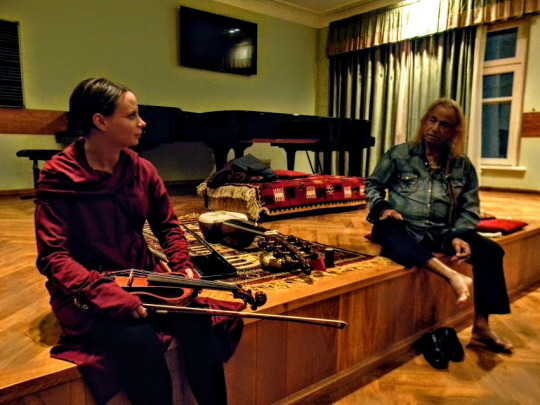
Scenes from the Master Class

Closing shot. From L to R : Ustad Pranesh Khan, Myself, Ustad Aashish Khan, Shri Atish Mukhopadhyay, Dr. Margarita Karatygina, student and flautist Sergei Emelianov
(Continued in Part 3)
#vselennaya#zvuka#universe of sound#moscow#conservatory#festival#international#classical music#tchaikovsky#travel
1 note
·
View note
Text
‘Vselennaya Zvuka’ - The Universe of Sound... (Part 1 of 3)
I had been a regular visitor at the hallowed Tchaikovsky Moscow State Conservatory, having caught in here some of the finest musical performances in my entire life (and for good reason - this is where the likes of Tchaikovsky have taught, and which among its alumni boasts of names like Khachaturian and Rachmaninoff). It didn't matter whether it was a full blown orchestra, a chamberpiece, or one of the many student performances, or open rehearsals – once I sat and closed my eyes, I would feel one with all the sounds and vibrations of the universe, while my heart rode its waves…
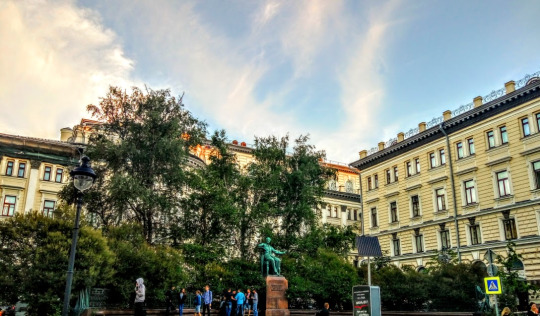
The Mosow Conservatory Building with the Tchaikovsky Monument visible in front
Naturally then, I was beyond thrilled when earlier in May this year, fellow music lover and mother figure, Debasmita di (Debasmita Moulick, Senior Journalist), introduced me to Dr. Margarita Karatygina, Musicologist and Head of the 'World Music Cultures Center' at the Conservatory. She informed us of the upcoming International Music Festival 'Vselennaya Zvuka' (Universe of Sound) which, in its 15th edition this year, would be bringing together artists and performances in Classical Music from various parts of the world. Thus, as a volunteer, photographer and Assistant to the Press, I was able to get a ringside view of the complete Festival over its full duration of a month and a half, and I couldn't be more grateful for this incredible opportunity to have come my way.
Presenting below some highlights and my personal favourite parts of the Festival…
An Evening of Soulful Iranian Music
Kicking off the festival was the Iranian Classical Music Concert “Symmetry of Shadows”, at the Rachmaninoff Zal of the Moscow Conservatory on the 8th of May 2017. The concert featured music written by various Iranian songwriters over the years. The composer and arranger for the evening was Shahin Sarikhani, while Hosein Nursharg was the Artistic Director.
Right from the moment the concert began, a palpable tranquil and ethereal atmosphere drew the listeners right in, with the musicians performing immersed in the moment and with their eyes closed. The powerful vocals of Sarang Seyfizadeh and Alirezakili Manesh were on display through their deft technique, while all the while making it seem effortless yet full of expression. The inability to comprehend the language did not seem much of a handicap at the moment, for the appeal of the precious words in those verses could still be felt. The great synergy between the vocalists and instrumentalists – for each could not have better complemented the other – resulted in creating a powerful ambience simmering with emotions.
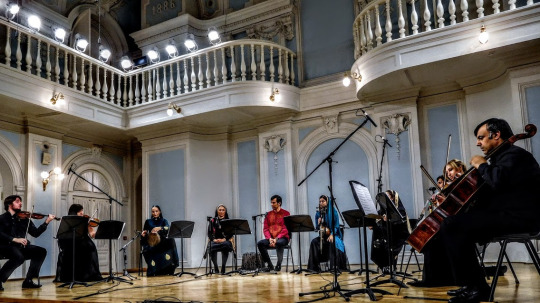
The complete ensemble
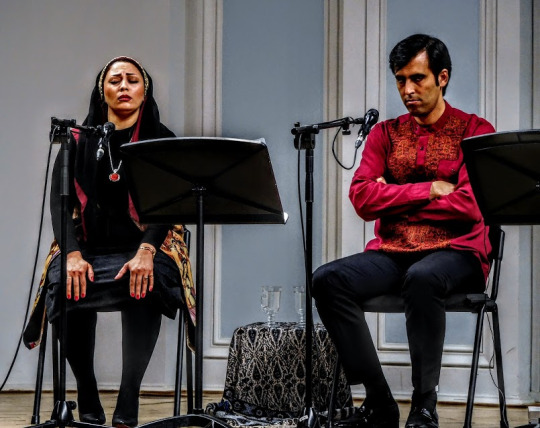
Vocalists Sarang Seyfizadeh and Alirezakili Manesh
The compositions gave adequate room to each of the instruments that were part of the ensemble to get the spotlight in turns; namely, the 'Tar' (string instrument – one of the most important in Iranian classical music) played by Azadeh Amiri, 'Kamancheh' (Iranian bowed string instrument) played by Nazanin Ghanizadeh, Mortaza Sanayei on the 'Nei' (flute), and Maryam Molla masterfully beating on the 'Tombak' (drum). The ensemble also included members of "Anno Domini', comprising of Mikhail Akinfin on the First violin, Nataliya Dyachenko on the Second violin, Alexandra Zhelbakova playing the Viola, and Samson Tatosyan on the Cello.
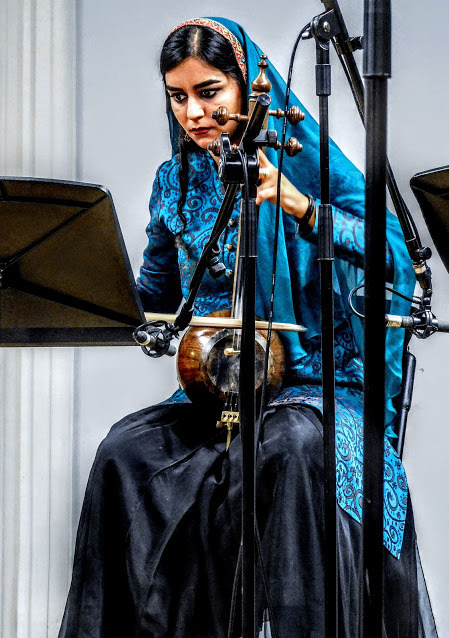
'Kamancheh' played by Nazanin Ghanizadeh
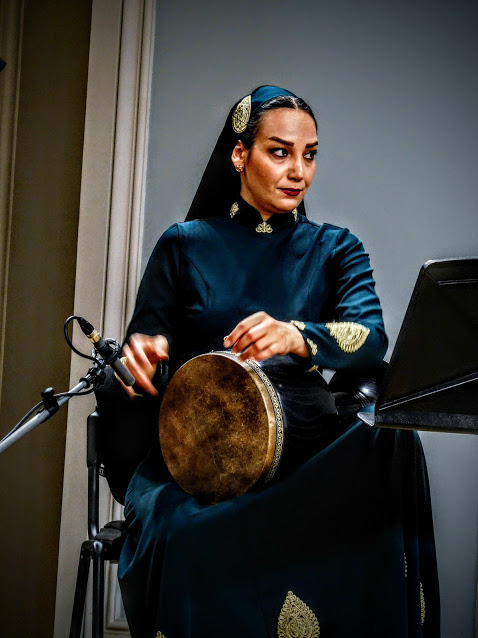
Maryam Molla on the 'Tombak'
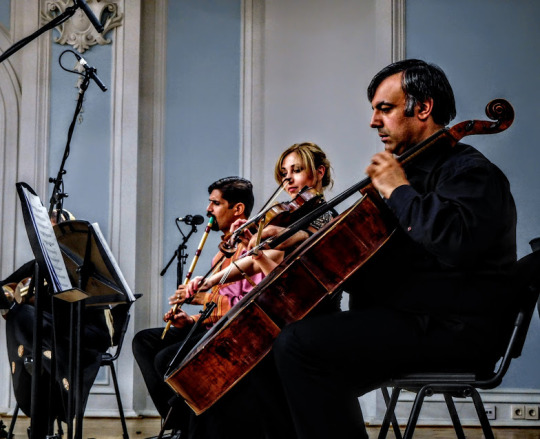
Mortaza Sanayei on the 'Nei' (flute), Alexandra Zhelbakova on the Viola and Samson Tatosyan on the Cello
All in all, the evening served as a wonderful introduction to Iranian Classical music, which – with its inherent sense of purity, virtuousness and unbridled devotion – left the audience wanting more.
More Treasures from Iran – Seven Flights, Seven Breaths
The magic of Iranian Classical Music returned with renewed fervour to the 'Maliy Zal' (Little Hall) of the Tchaikovsky Moscow State Conservatory on 23 June 2017, when Hossein Nursharg teamed up with the group 'Caravan' to present the Concert 'Seven Flights, Seven Breaths'.
Hossein Nursharg was born in Borujen in Iran, and besides being one of the primary exponents of the Iranian classical music form of 'Avaz', is also an actor, consultant and cultural ambassador. Since the beginning of his association with the Moscow Conservatory in 2008, he has actively promoted the study of musical traditions of his region, and has been instrumental in the development of cultural cooperation between Russia and Iran. With his assistance, the Moscow Conservatory started offering classes in Iranian classical music, and over the years has held more than thirty concerts and launched several projects.
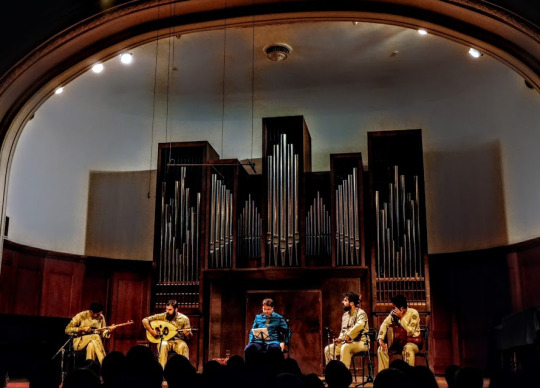
The performers at the Maliy Zal
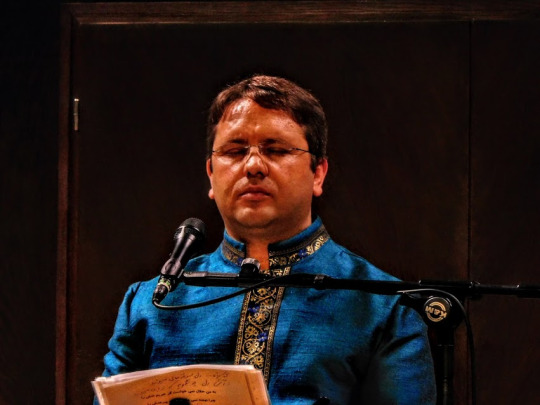
Hossein Nursharg
Born from a potent concoction of the sacred chants of the 'Vedas' (ancient Hindu scriptures) and the 'Avesti' (Zoroastrian Archives), and perfected over centuries in the luxurious palatial environs of the Persian Empire, which played host to intellectual exchanges among the finest poets and philosophers from back in the day, Iranian classical music holds profound historical significance and is the very essence of one of the most ancient and richest cultures the world has ever seen. The vast repository of rhythms and melodies, created by generations of gifted composers, continues to be used by musicians to this day, and has been organized under the modal system of "Dastgāh" ('Dast' – hand; 'Gāh' – place). There are seven dastgāhs in all, namely, "Šur", "Māhur", "Segāh", "Čahārgāh", "Rāst-Panjgāh", "Homāyun" and "Navā". Further derived from dastgāhs are seven "Āvāzes" (vocal sections), with five of these being under Šur alone. The concert centered around the Afšārī āvāz under the Šur dastgāh.




Various moods of the performers
There were seven parts (seven 'breaths') to the programme, starting with "Sharaab e Gazal", a poem composed by Majid Wahid and set to the Šur dastgāh. Many "Tasnifs" (ballads) followed, such as "Ku Ye Jonun", "Negar", "Sarv-e-Hajel", "Na Godrat Ke Ba Vei Neshinam", among others, including a "Saaz o Avaz" (medley) of the Afšārī āvāz. The evening finally ended with the electrifying songs "Dush Dush" and "Tond Tond". The atmosphere remained charged throughout and the music had an enchanting and hauntingly melodious effect. The accomplished vocals of Hossein Nursharg were of course responsible for a large part of the magic; but giving him abundant support were members of the group 'Caravan', namely, Zabihollah Vahid on the "Kamancheh" (Iranian bowed string instrument), Misag Mehrpur on "Oud" (pear-shaped string instrument), Masoud Tadayoni on the "Setar" (bowed lute), and Homayun Jahanshahi on the "Tombak" (drum).
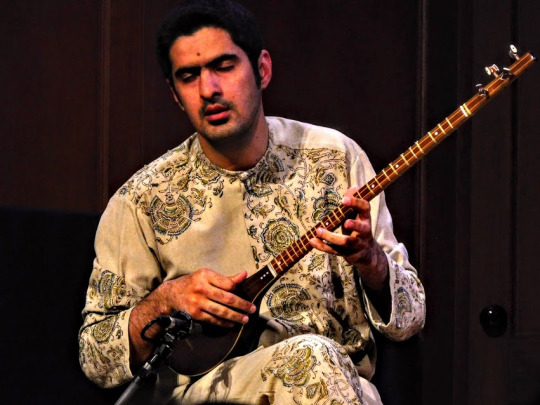
Masoud Tadayoni on "Setar"

Misag Mehrpur on "Oud"

Zabihollah Vahid on "Kamancheh"
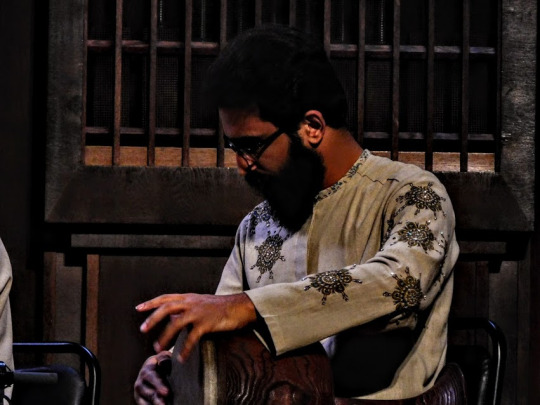
Homayun Jahanshahi on "Tombak"
It is indeed admirable that we have proponents of art forms of such mystique and power among us. These lines by Iranian poet Bahman Rafei seem befitting in honour of such artists committed towards sharing the depths of their soul with the world:
“There remain in my lips,
Many a poem unborn.
Till I have this voice,
To not be silent I have sworn“
(Continued in Part 2)
#vselennaya#zvuka#Universe of sound#international#classical music#festival#moscow#conservatory#tchaikovsky#travel
0 notes
Text
The Stigma of the Gap Year...
From the many interactions I have had by now with students and friends from other parts of the world, one thing has emerged as clear as day – taking a Gap Year after finishing school, or indeed at any point in life, is nothing to be ashamed of.
After all, what imaginable harm could possibly come from sitting still for a while, from centering and earthing yourself?? You could take off and travel (though I am inclined to agree with this being a predominantly first world privilege), you experience life, or just take time off to give to your spiritual pursuits, to introspect and journey inwards, and return to the ‘Matrix’ with renewed vigour to combat it better. Everyone without exception who has allowed themselves a Gap Year - Obama's daughters included - looks back at the time fondly, and remembers it as a time that gave them the much needed answers they needed knowing, before making the big decision on what to do next. Worry of finances is secondary – hopefully your parents can and will help you out when young, if they are convinced it'll help you decide the course of your future better; or if at a later stage in life, you can surely figure out a way to save up enough and make it happen if you really want to. But the benefits are many and immeasurable – it gives clarity, perspective, time and freedom for soul-searching, and some friends for keeps along the way. And while certainly most of my friends from the Western world have it much easier (no offence, but I am talking higher currency advantages, finding employers for short-term jobs ready to lap up and even pay decently all you privileged white folk, or just the fact that you can simply go to almost any part of the world and find a gig as a teacher of English as a 'native speaker'; even though, at the risk of sounding a tad immodest, I think I can teach English grammar better than a lot of y'all), we Indians could very well enjoy a gap year too… that is, if it weren't for the horrible stigma built around it, and the incredibly difficult time our neighbours, relatives and all of society come together to put us and our parents through should we take one. Taking a gap year in India is to have failed a year. Period.
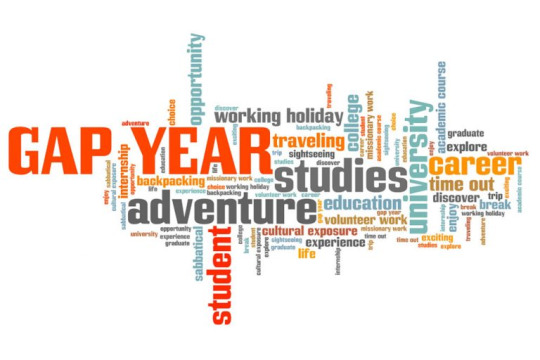
Gap Year: A multitude of possibilities... (Image © Tupungato)
Perhaps as a result of the inherent Indian value conscious school of thought, anything and everything is and ought to be an investment expected to generate returns (which a gap year undeniably does, just in ways that take a different way of seeing to fully appreciate). It's almost painful how genius we Indians are as Economists and Financial Planners ("Do you realise that you are foregoing a full year's worth of income? The opportunity cost is too high, sonny…"), and how concerned everyone around is to warn you of the glaringly disastrous step you are about to take. I am not entirely resentful – I do genuinely love the openness among our people, and I wouldn't trade it for any other way of being in the world – but yes, a little subtlety and sensitivity would be nice…
For most of us Indians, there is, however, one place that does come to mind for those toying with the idea of a gap year – Kota. Located about 6 hours from the city of Jaipur in the highly visited state of Rajasthan, the city has over the years earned itself a formidable reputation as a place for Medical and Engineering aspirants; so much so, Wikipedia calls it the "Coaching Capital of India". Ten years ago in the year 2007, having just finished high school and not having made it to one of the coveted Indian Institutes of Technology (IITs), I decided to give it another shot the following year and sought refuge in Kota in an attempt to prepare in the right environment, but more importantly, to escape prying eyes of neighbours and escape their painfully insensitive questions and snide remarks. Oh, those were difficult times – many angry tears were shed, heated exchanges had, the worst and the most lowly thoughts entertained… but my parents put up with it all and shielded me from anything remotely likely to disturb or cause mental trauma. Wherever would I be without them??
It was thus in July of 2007 that I first landed up in Kota. First impressions? Everything in sight reeked of ‘coaching’ having been turned into a roaring business. Hoardings all over town would proudly advertise not consumer products, but top rank achievers from the last outgoing batch (single digit 'AIRs', or All India Ranks, on the rolls of every one). Names of institutes too had clearly been lifted from topics in Physics, Chemistry and Mathematics ('Resonance', 'Motion Academy', 'Nucleon Classes', 'Infinite Institute', among others). I reached and settled in at the cosy little room in my hostel that was to serve as home for the next many months. My neighbours were a motley lot, having come from all parts of the country, but all united by the same disappointment at not having cracked the exams that year, and the resolve to make it come what may next year. As much as our parents warned us ("Remember, you have not gone to make friends and socialize… None are your well-wishers, only competitors…"), we could not help bonding, and bonding deeply, for we had come together in the lowest point in our lives yet.
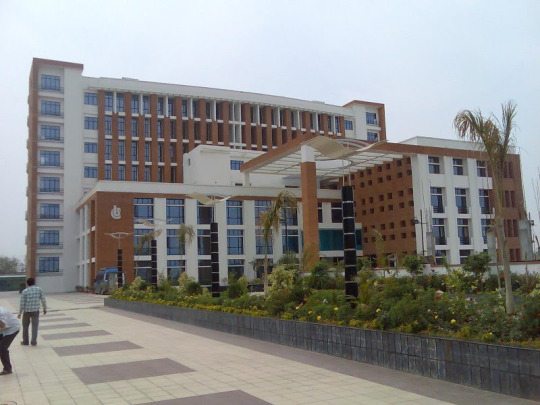
Gaurav Tower, Bansal Classes Kota
A typical day would involve getting up early in time for classes, starting mostly at 8am (some extremely committed teachers would even call for classes at 6). The newly erected and swanky new Bansal Classes' (veterans in IIT coaching, founded by Mr. VK Bansal – a known and respected figure today in all of Kota) 'Gaurav Tower' was the location for most of our classes – about a 15 minute walk from where most of the hostels were, and to even save time on which, most had rented bicycles. A loaded day would see classes going on till 8-9pm; there were some light days with one or two classes, or spread at different times of the day so one could come back grab lunch or a quick nap; and then some days off. Evenings were for solving 'Daily Practice Problem' (DPP) sheets handed out earlier in the day. At any time, someone could come out to the corridor and start asking anyone passing by for help on a problem they couldn't solve, and we would all huddle and put our brains together; the one who did end up having the 'Eureka!' moment was hailed as a hero, while the others would curse themselves the rest of the evening for not having thought of the solution earlier. Meals were the kind our mothers were happy to hear about, but which to us were often unpalatable. A lot of us non-vegetarians found to our dismay that we were hard-pressed to find anything remotely exciting to suit us in the most part of town, except for some roadside stalls that served boiled eggs / omelette. Cyber Café visits were reserved for the weekend, to catch up on happenings in the world outside and our social media (though Orkut was the most we had at this point). Every once in a while, 'Module Tests' were to be expected – the performance in which decided the batch (ranging from X1 to Z10, with regular X1s being the most exalted ones) we would be placed in for the next couple of months; and all the while, our performance could be monitored online by our parents on the 'SPP' (Student Performance Portal). I continued to fare way below the standards I had set for myself in my head, and certainly way below the standards prevailing at the Institute.
However, some light moments interspersed every now and then made the going not-so-bad. Some hilarious stories and anecdotes come to mind! Since Harry Potter craze was at its peak at this time, it was common for us to play make-believe and cast imaginary spells at each other or on arbit objects. To add to the hilarity, we would use the incantations as heard in the Hindi dubbed versions of the movies. And so, even as a friend and I stood facing each other and wielded imaginary wands, he tried to disarm me with what should have been "Nirastrabhava!" (Expelliarmus) but ended up coming out as "Nirvastrabhava!" (Strip off your clothes!)... and it was at this exact moment that the door just behind me opened and a third person emerged, wearing only his boxers! To this day, I suffer relapses of uncontrollable laughter merely replaying the scene in my head…!

With my group of friends (Do not miss the Periodic Table sellotaped on to the wall, and the clothes threatening to fall off the hooks...)
The bond with the friends I made only grew, and in time we became akin to family and the biggest support system to each other. No veil remained by the end of the year, with each of us having bared our souls and shared our deepest, darkest secrets with each other. We would gather once in a while in one of our rooms, and just talk till the break of dawn – about family, about childhood, dreams, ideals and beliefs… even forbidden fantasies! We called these sessions 'Mehfil' (a delightful Urdu word, the closest in translation to which would be the French word 'soiree'), and our WhatsApp group which keeps us connected till date has been christened the same.
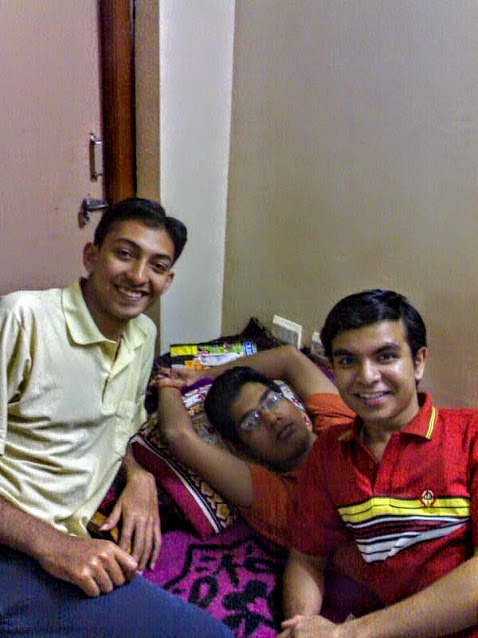
‘Mehfil’ in progress...
That year in Kota taught me more than just Physics, Chemistry and Mathematics. I learnt to identify and avoid parasitic or leech-like souls (a term I was to become familiar with only much later) who would drain my energy out, and tell them apart from real friends, whose mere presence uplifts you. I moved out of the watchful eyes of my parents for the first time, and experienced living independently while not giving in to any of the unhealthy habits that I saw were rampant – whether smoking, drinking or drugs. I discovered my knack for exploring a new place on my own – a skill that comes in handy even today as I travel solo. Most importantly, after a long struggle, I made peace with the fact that I am not a born genius in the Natural Sciences, and so likely won't get in to the IIT even a second time despite my best efforts… and that is okay. I am not stupid (my Mensa membership proves that). On the contrary, I have a gift of a more or less evenly high spread across all faculties of intelligence – whether for music and the arts, emotional and behavioral intelligence, a decent Quantitative Aptitude, and others including a love for Linguistics and writing which helps me pen all of this down and bring it forth by means of this blog. To go back to the note I started on, I got everything out of my Gap Year that one seeks - clarity, perspective, time and freedom for soul-searching, and some friends for keeps along the way… Now if only one could tell the aunt who tsk-tsked me that (”Did you really have to waste a whole year son...?”).
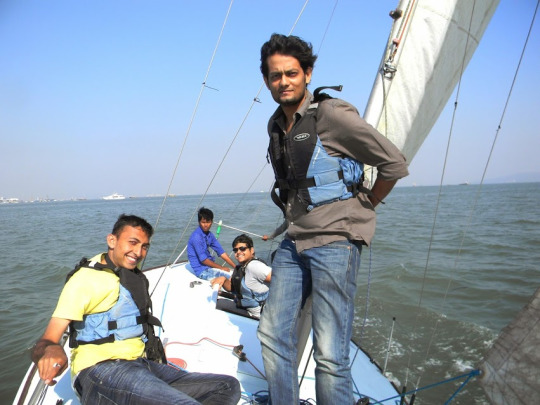
Free birds, sailing many years thence on the High Seas of Mumbai...
Ten years on, happy to report that my friends and I have gone down our different paths, and all of us are without exception doing very well for ourselves. Most of them now have MBA degrees in their kitty from some of the best B Schools in the country, some have been exploring the world one country at a time, and yet another is well on his way towards a highly rewarding career in music. Which reminds me of a comforting but often overlooked fact – everything does ALWAYS turn out well in the end… So whenever we have a choice, must we choose to suffer? Can we not be a little less reprimanding of ourselves, and instead give ourselves the time and liberty to detoxify and mentally 'sort things out' once in a while? Just take that Gap Year without worrying too much - if you are convinced it’s good, you can convince anyone else it was good.
PS: As to what triggered this post, ten years since the Gap Year in question – I have just returned home from completing a Masters degree abroad. I now intend to give myself a guilt-free 'brain break' of a few months, and spend time with my parents, whom I have seen little of in the last couple of years… And to that uncle, aunt or neighbour, who may see me at home and ask brazenly if I am having a hard time finding a job, I intend to just give them a sly smile and say, "You'll know soon…"!
#life#lessons#experience#gap#year#stigma#india#kota#iit#coaching#insight#thoughts#rajasthan#competition#pressure#stress#change#accept#liberty#luxury#freedom#time
0 notes
Photo
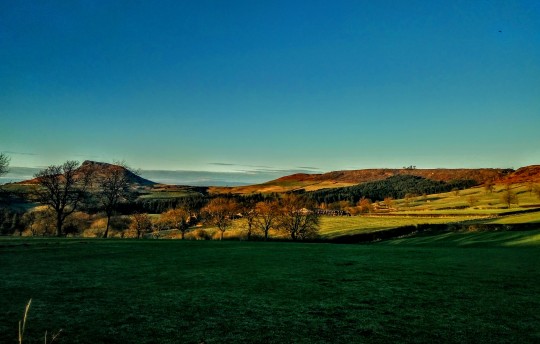






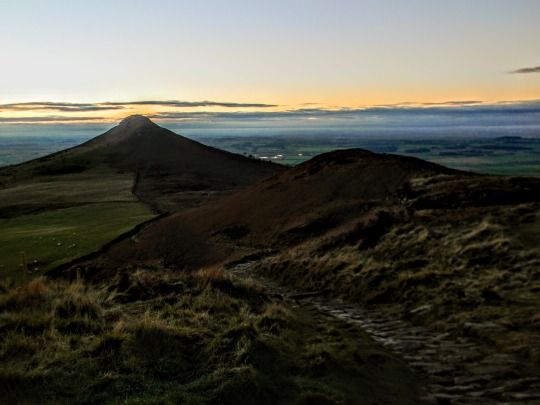

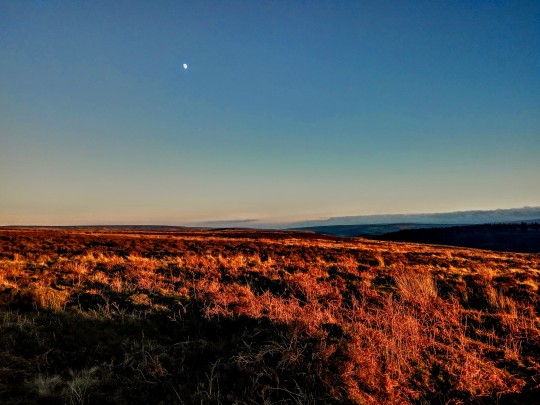
Roseberry Topping - Another North Yorkshire Gem
Photos © Abhinav Banerjee
#north york moors#yorkshire#cleveland way#roseberry topping#hiking#hikers#middlesbrough#Newton moors#summit#beautiful views#sheep#cattle#herd#horses#pony#Great Ayton#newton#roseberry#gallery
0 notes
Photo
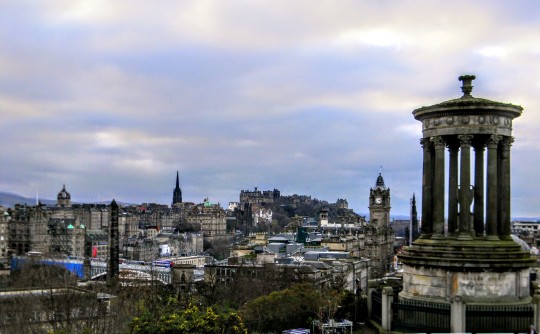





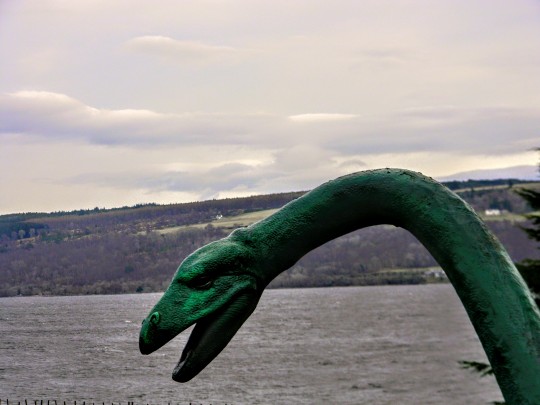



Aye, it’s Scotland...!
Photos © Abhinav Banerjee
#scotland#scottish#highlands#scotland tour#edinburgh#royal mile#scotch#whiskey#nessie#lochness#urquhart#castle#night lights#men in kilts#bagpipes#caltonhill#arthursseat#scotrail#gallery
7 notes
·
View notes
Photo

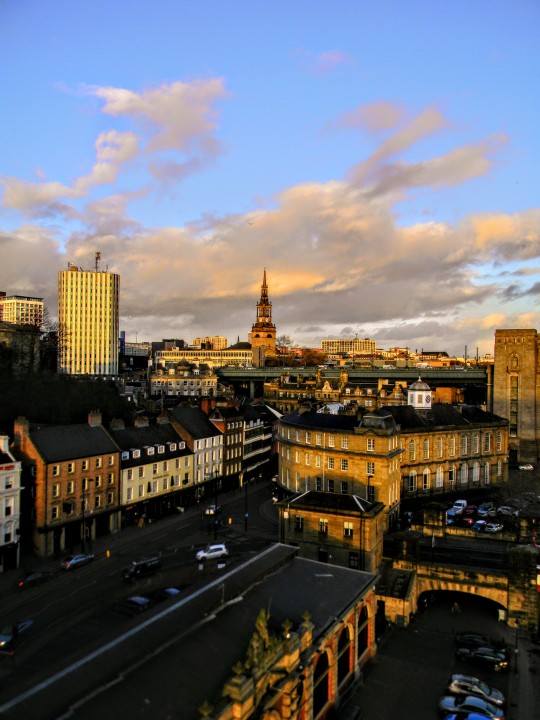
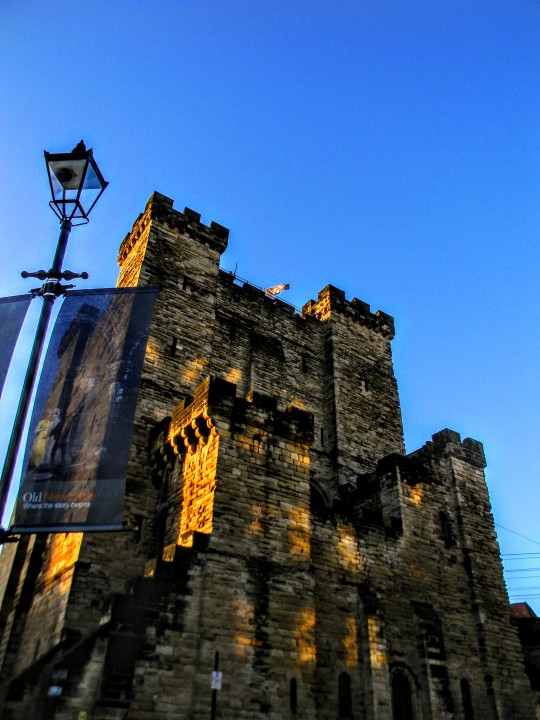




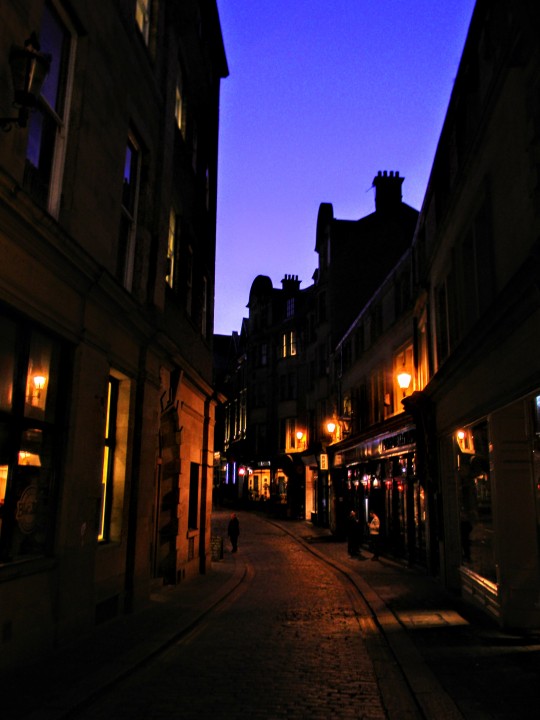

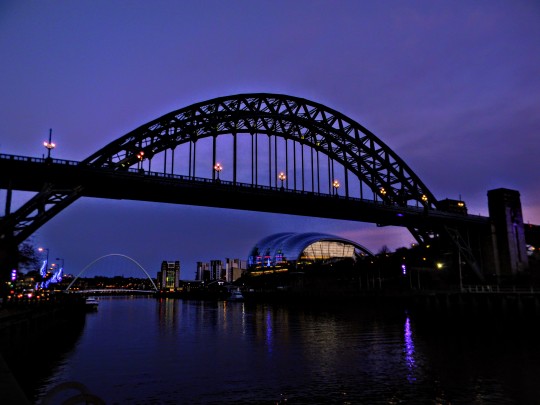
Newcastle: With all its bridges that take you over time, over the Tyne...
Photos © Abhinav Banerjee
#gallery#newcastle#newcastle upon tyne#river tyne#tyne bridge#gateshead#millennium#bridge#cobbledstreets#nightlife#harbour#sydney#similar#st nicholas#church#all saints#vampire#rabbit#skyline#city#cityscape#city streets#earl grey#monument#statue#castle#england#visit#tourism#britain
3 notes
·
View notes
Photo








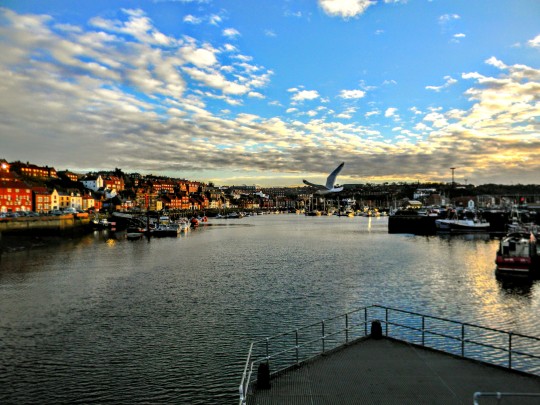

Whitby - Home to much more than just the best Fish & Chips in the World...!
Photos © Abhinav Banerjee
#whitby#fish and chips#seascape#rainbow#seaside#beach#sea#gull#seagull#abbey#harbour#port#marina#wharf#colourful#beautiful#town#rooftop#beach huts#gallery
1 note
·
View note
Photo

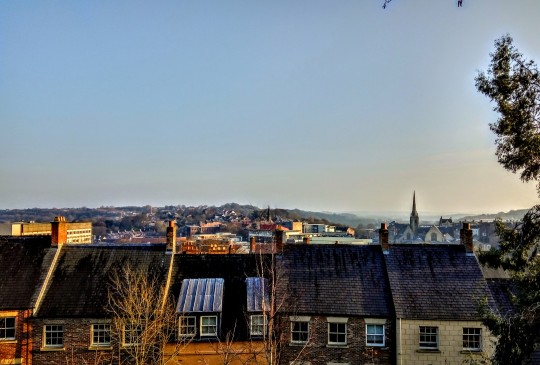
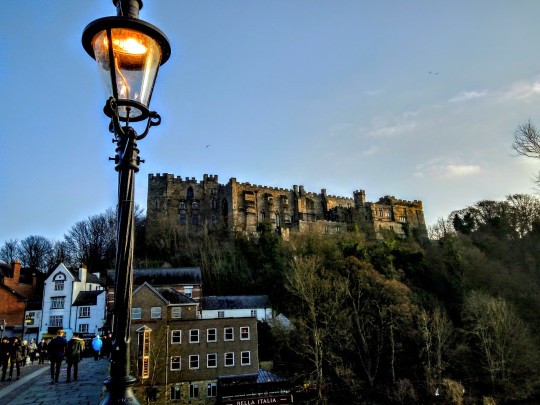

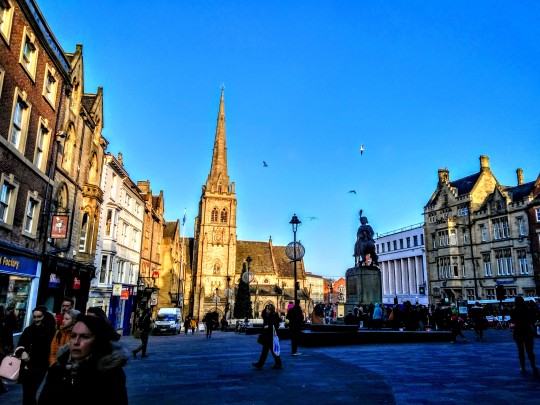
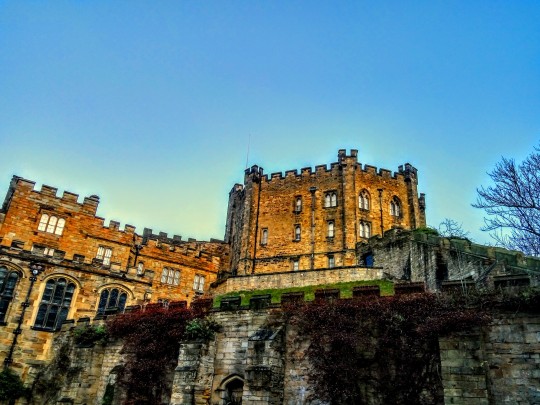

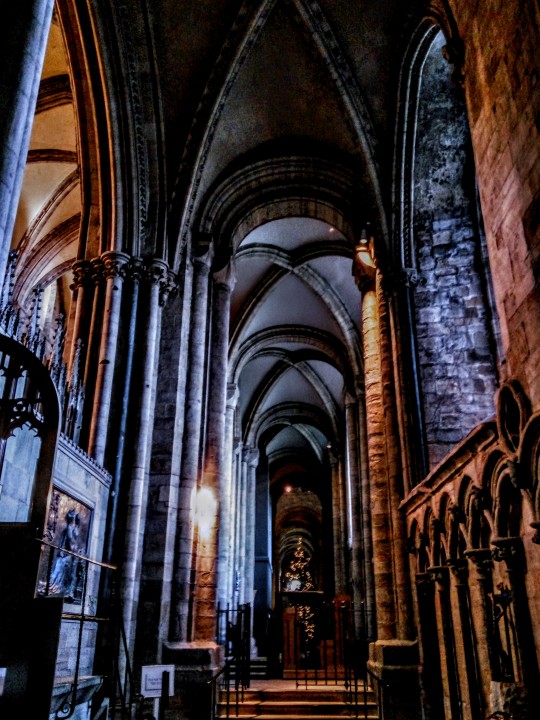
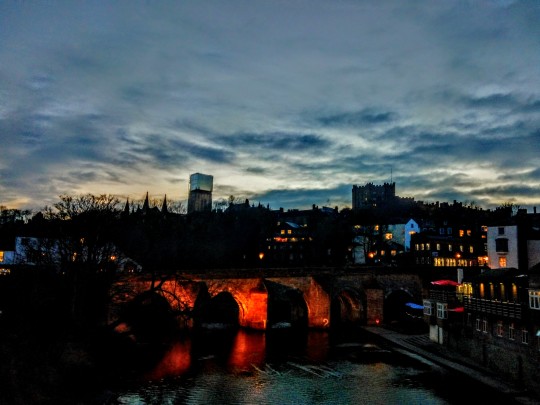

The Cathedral Town of Durham - a most underrated UNESCO World Heritage Site
Photos © Abhinav Banerjee
#gallery#durham#northeast#england#explore#tourism#beautiful#yorkshire#county#river wear#bridge#castle#cathedral#harry potter#shooting#location#viaduct#railway#photography
0 notes